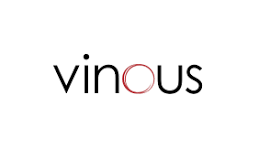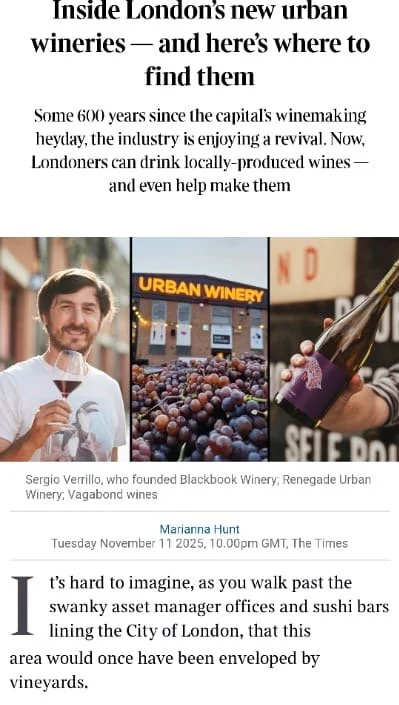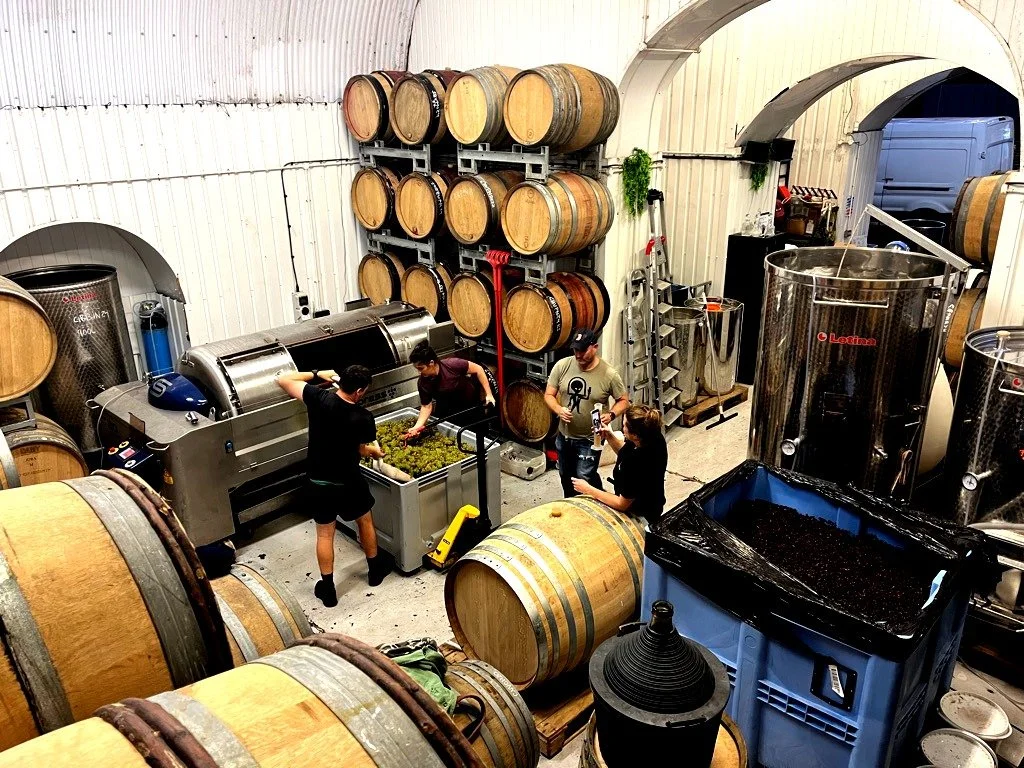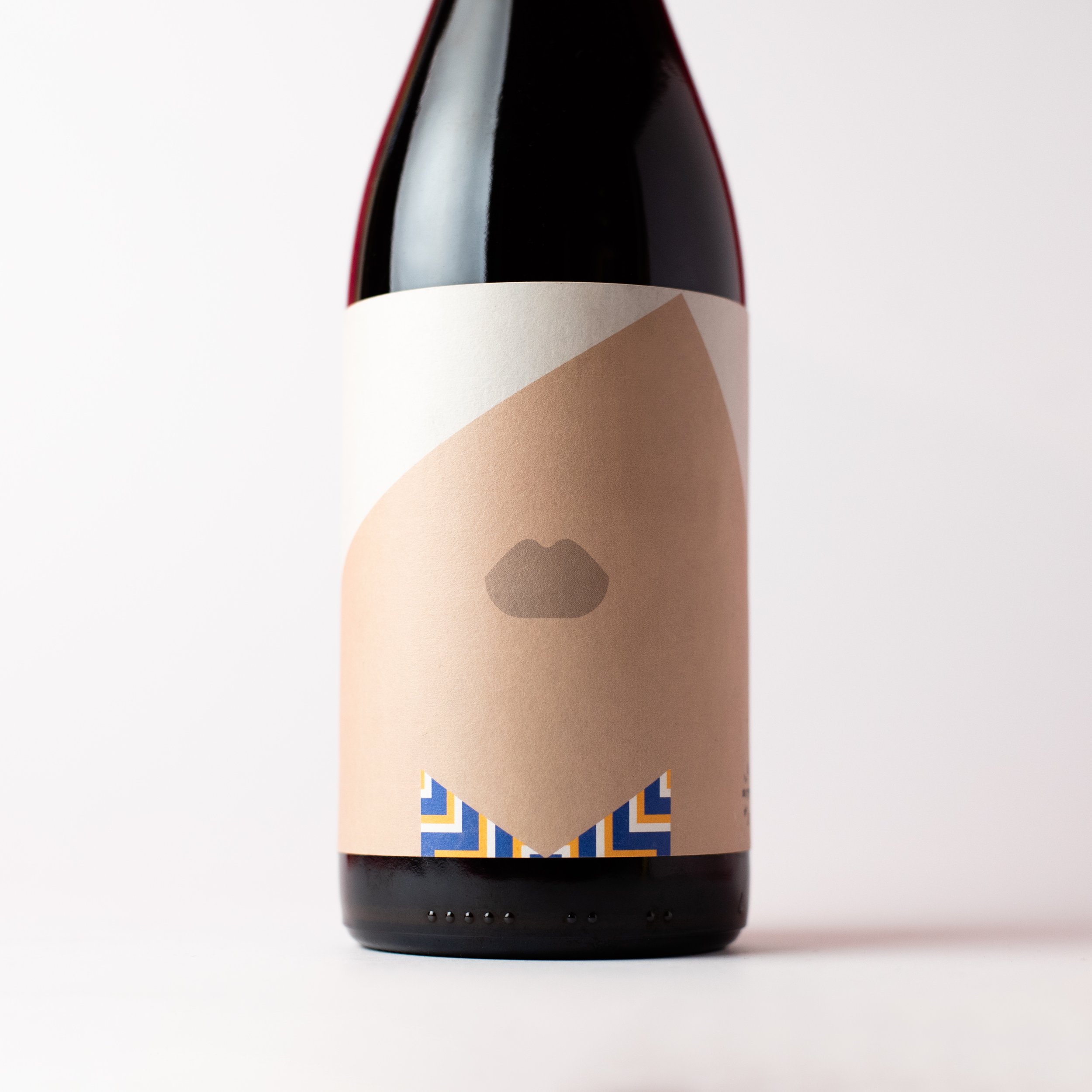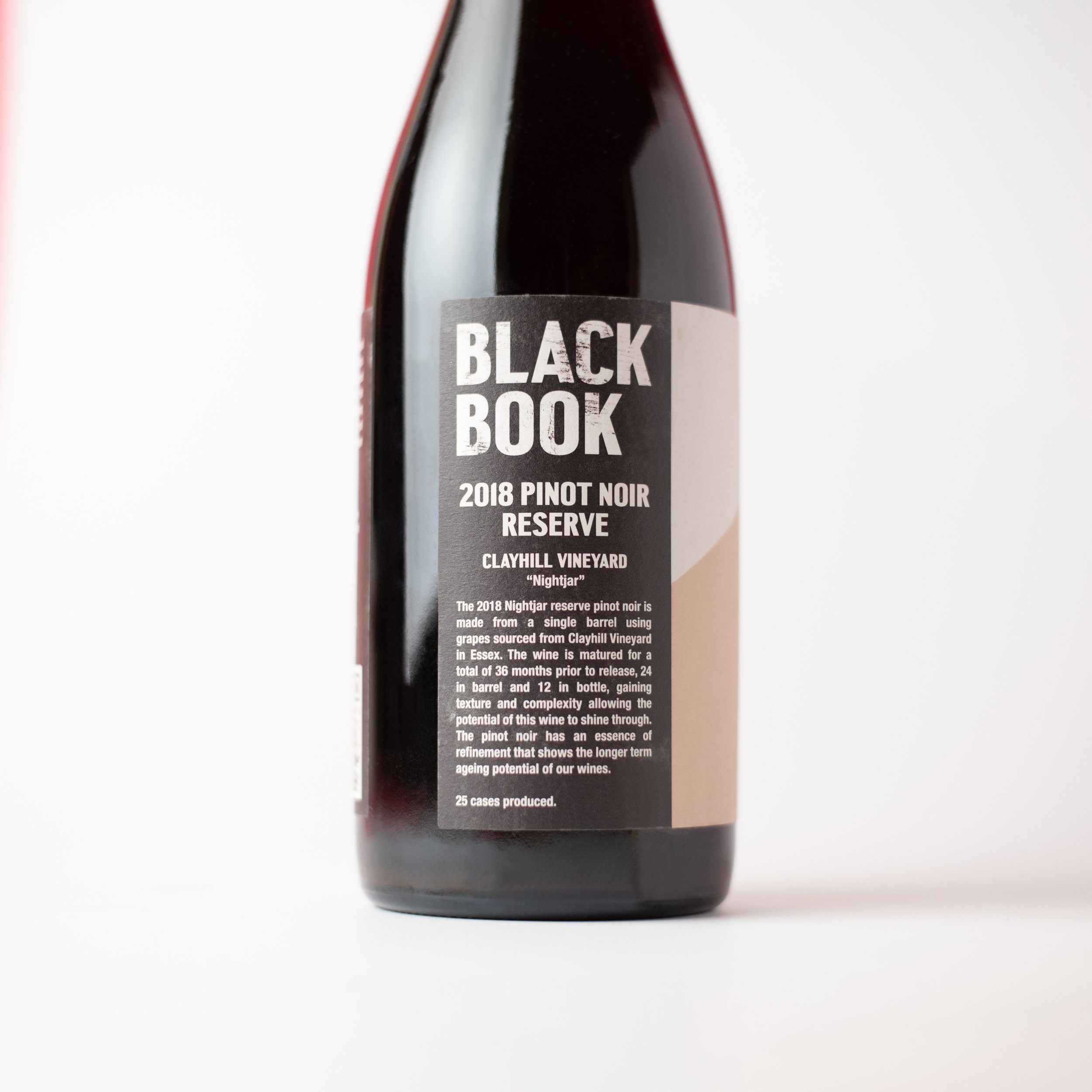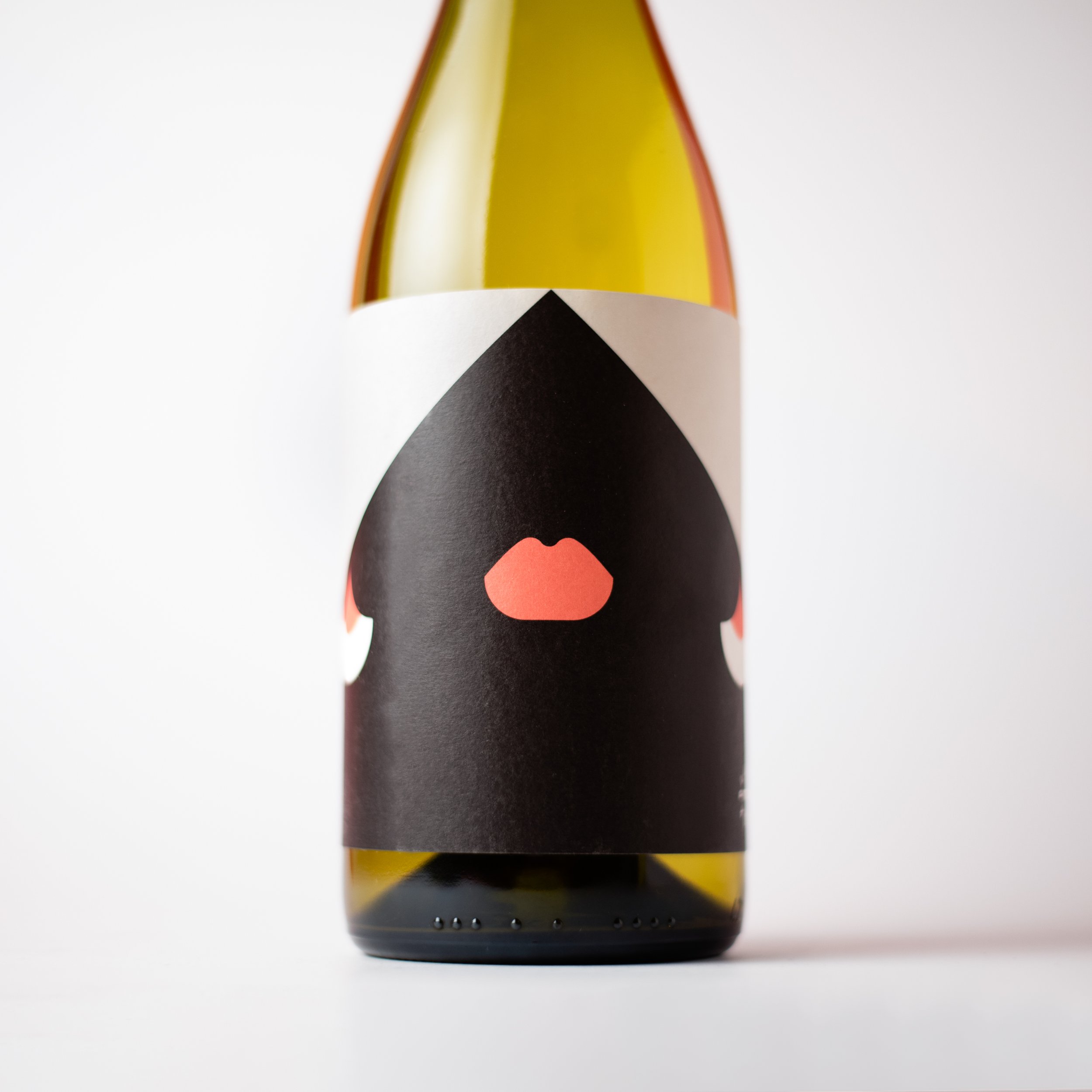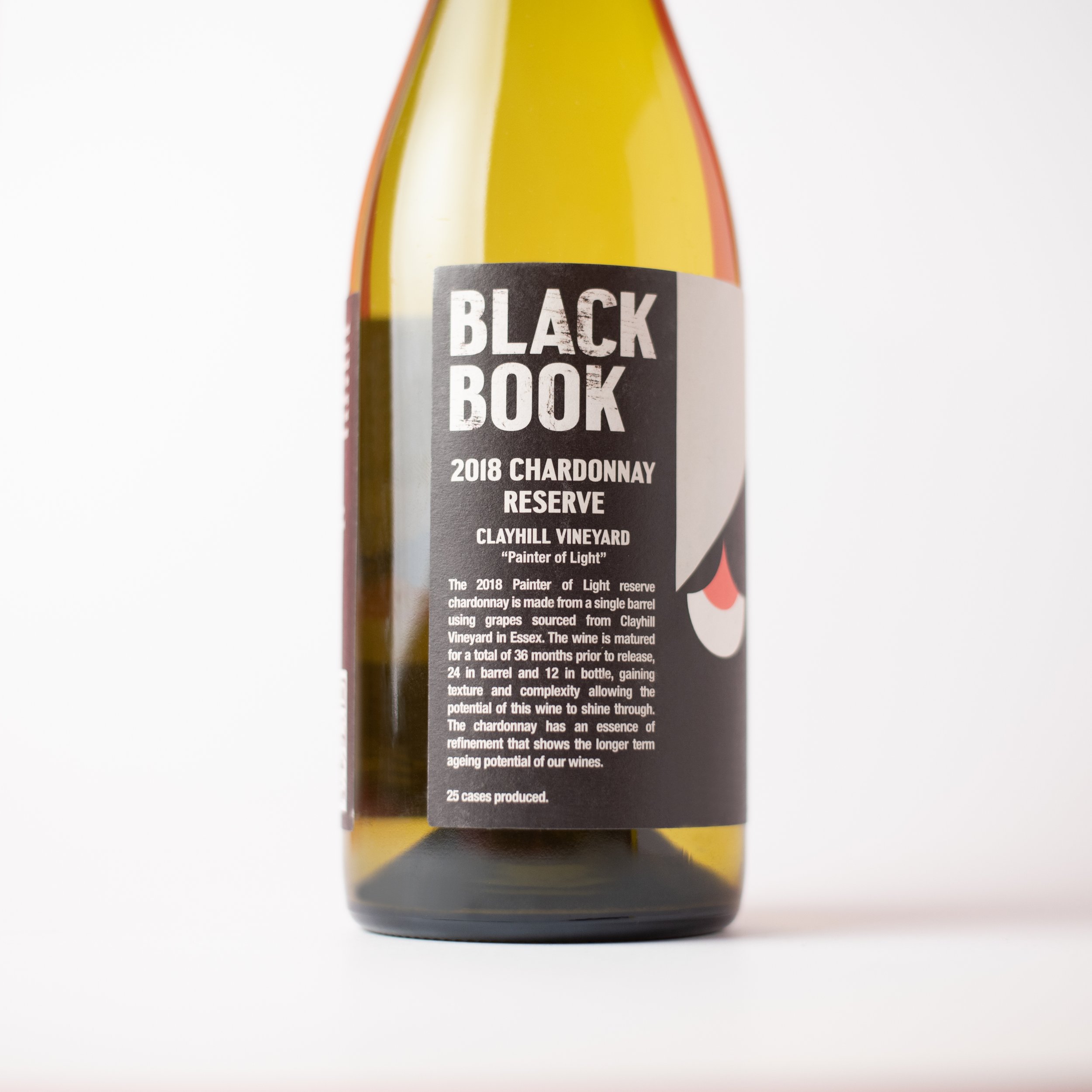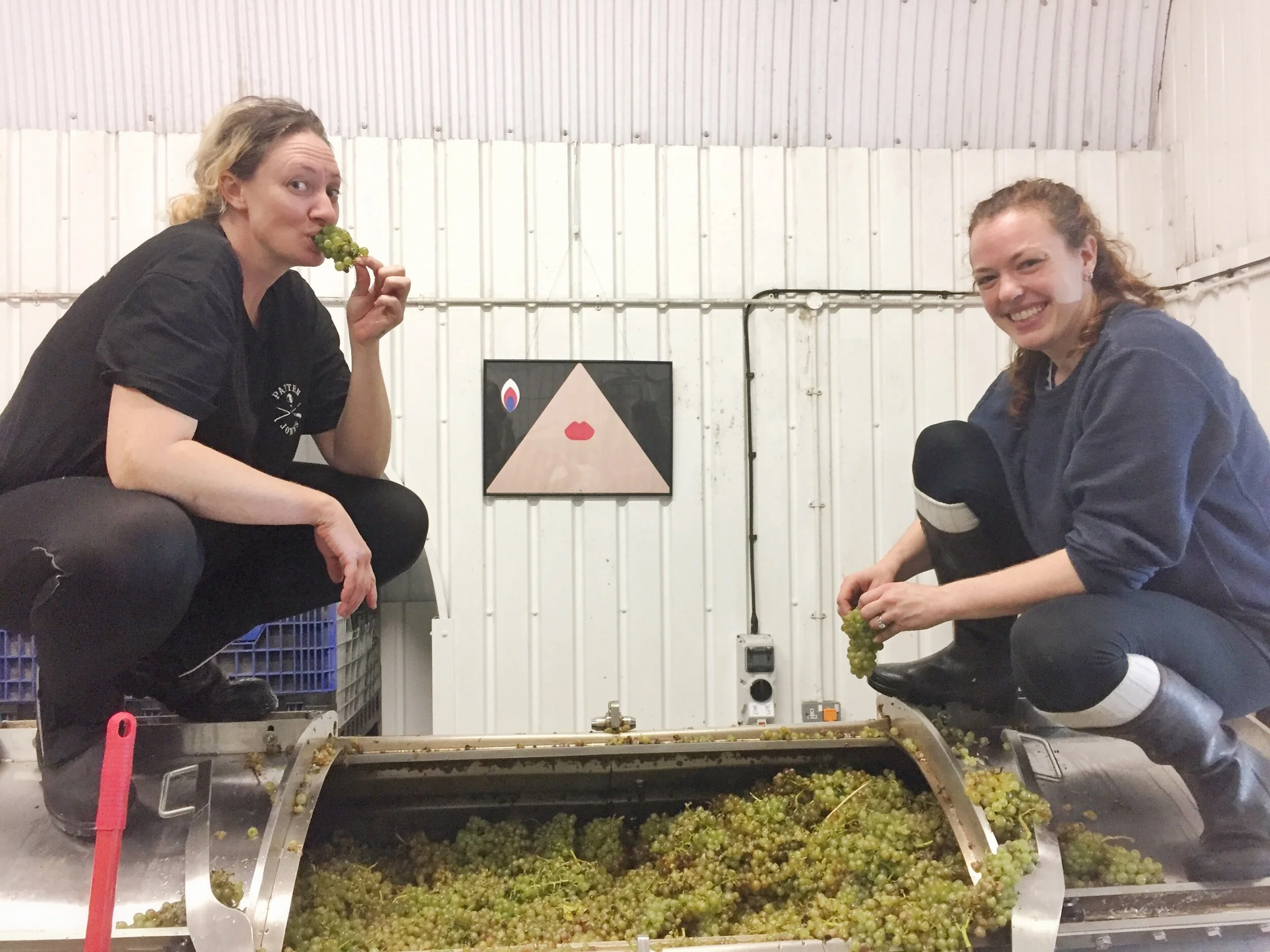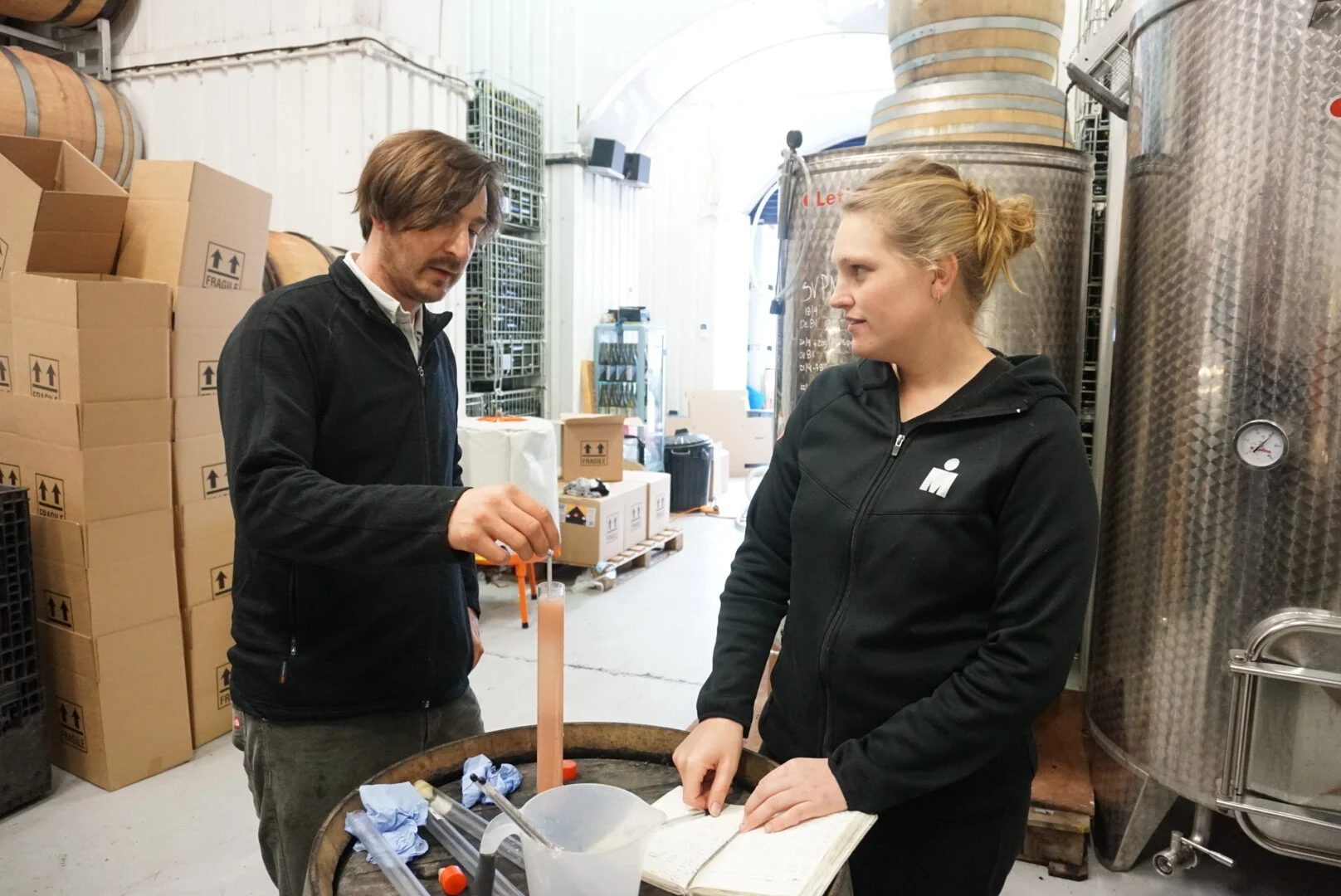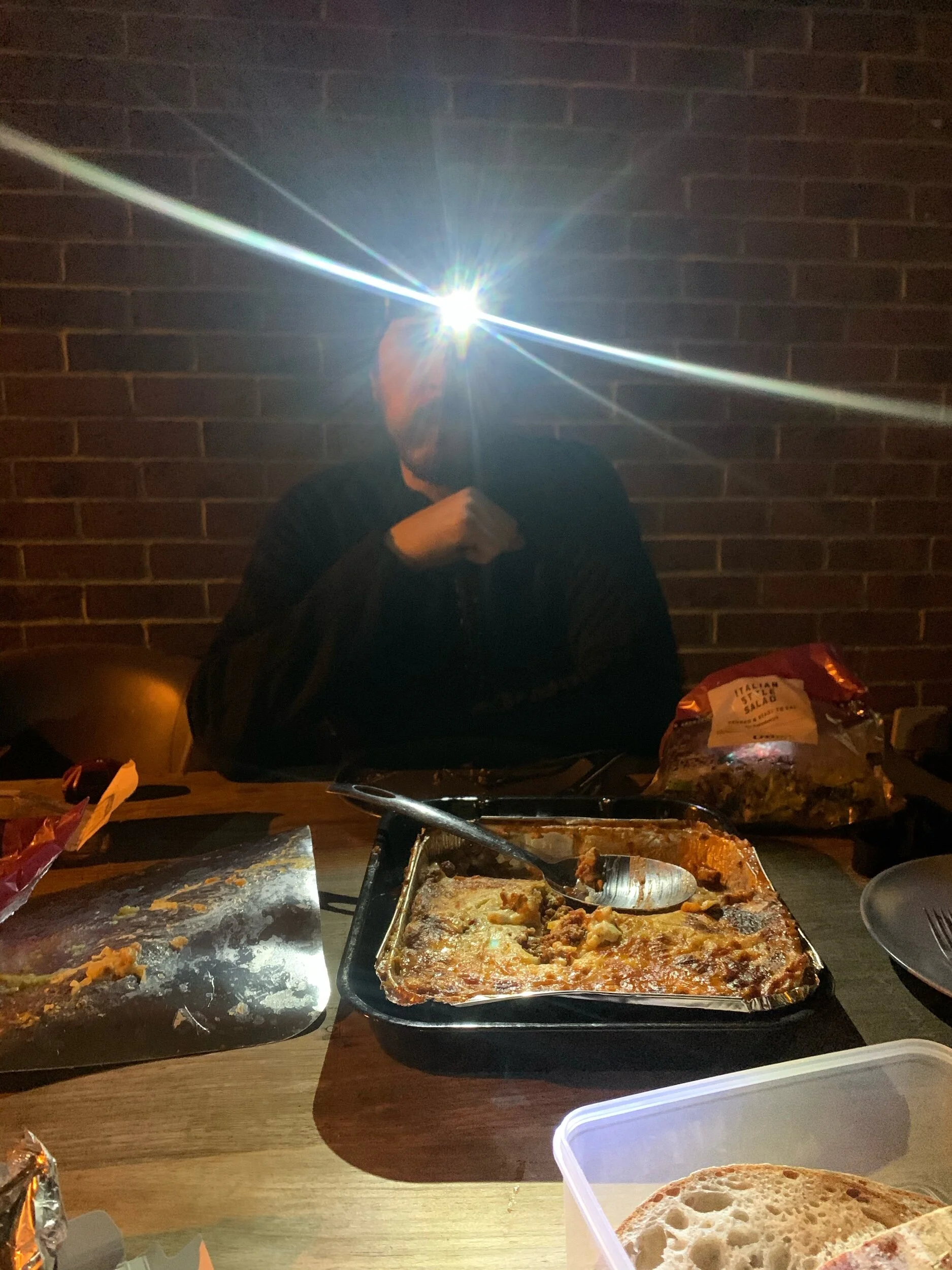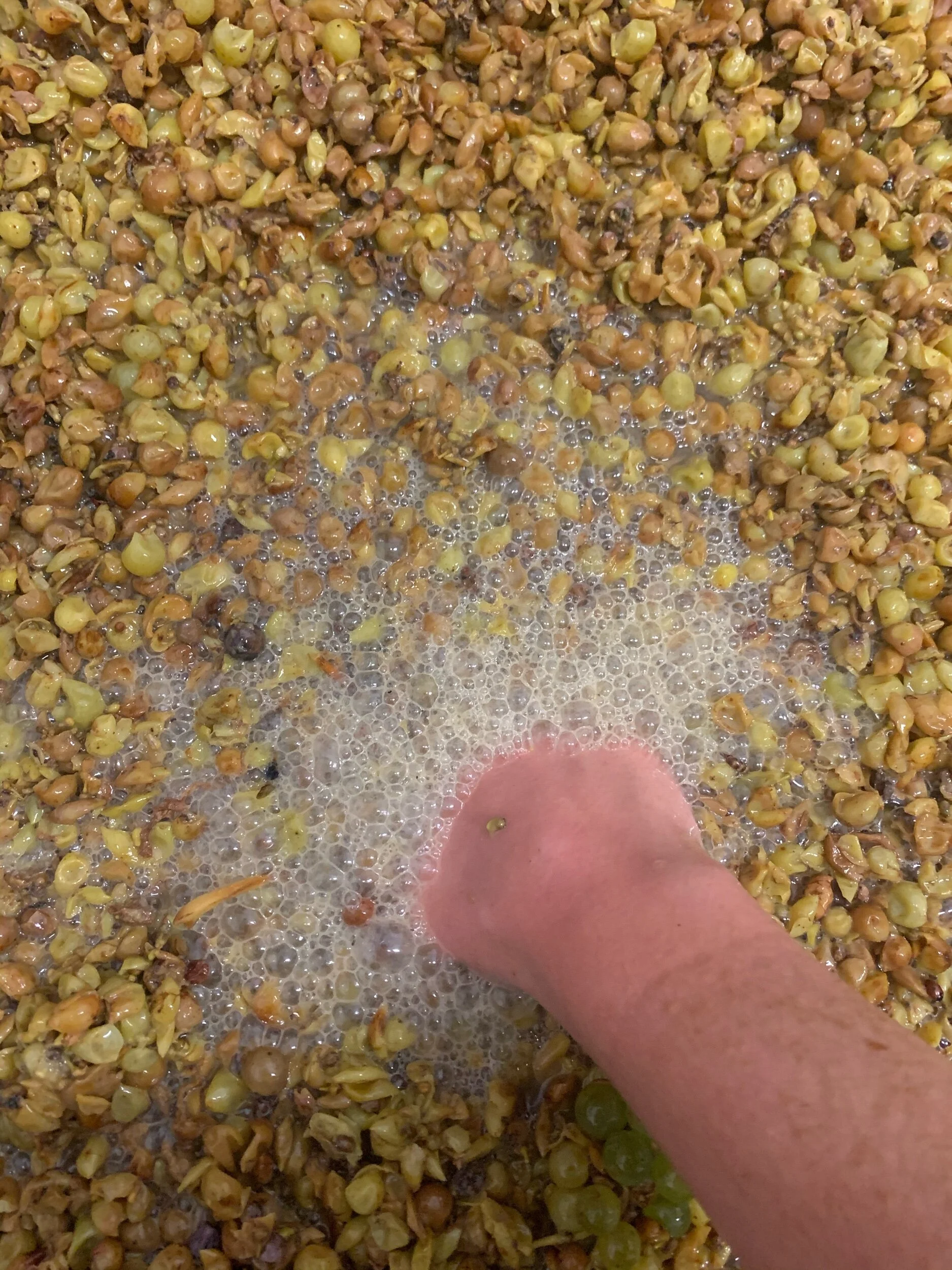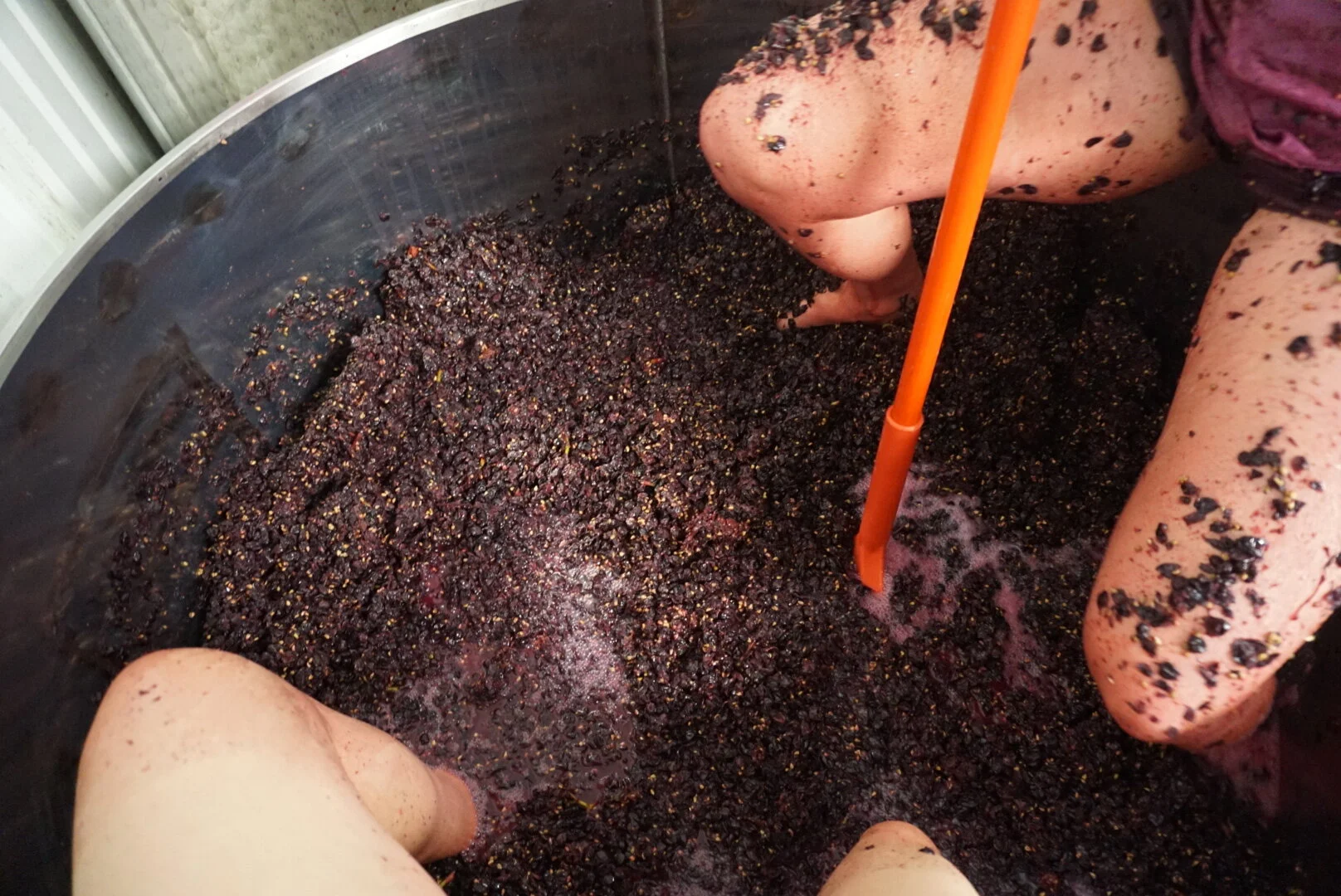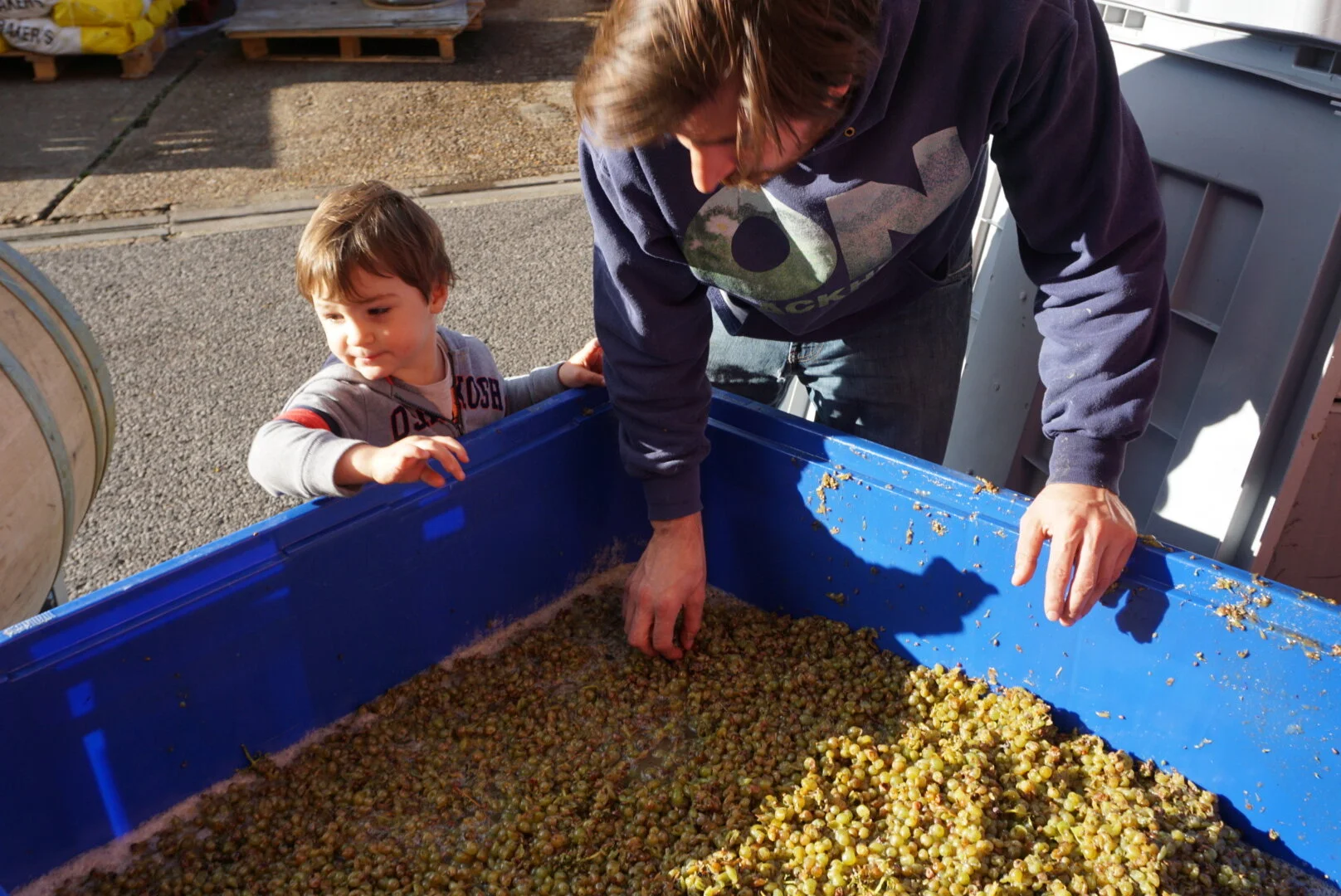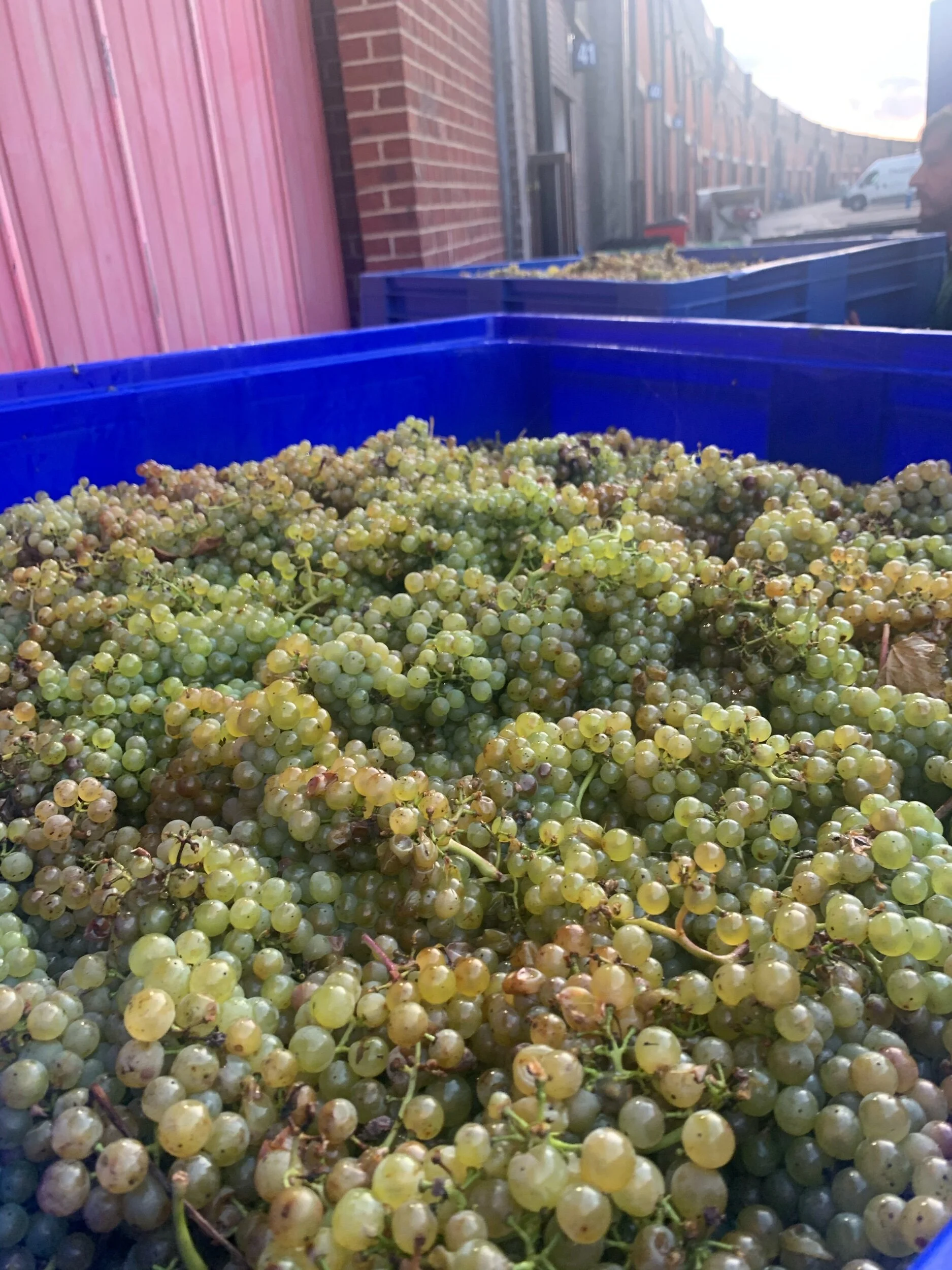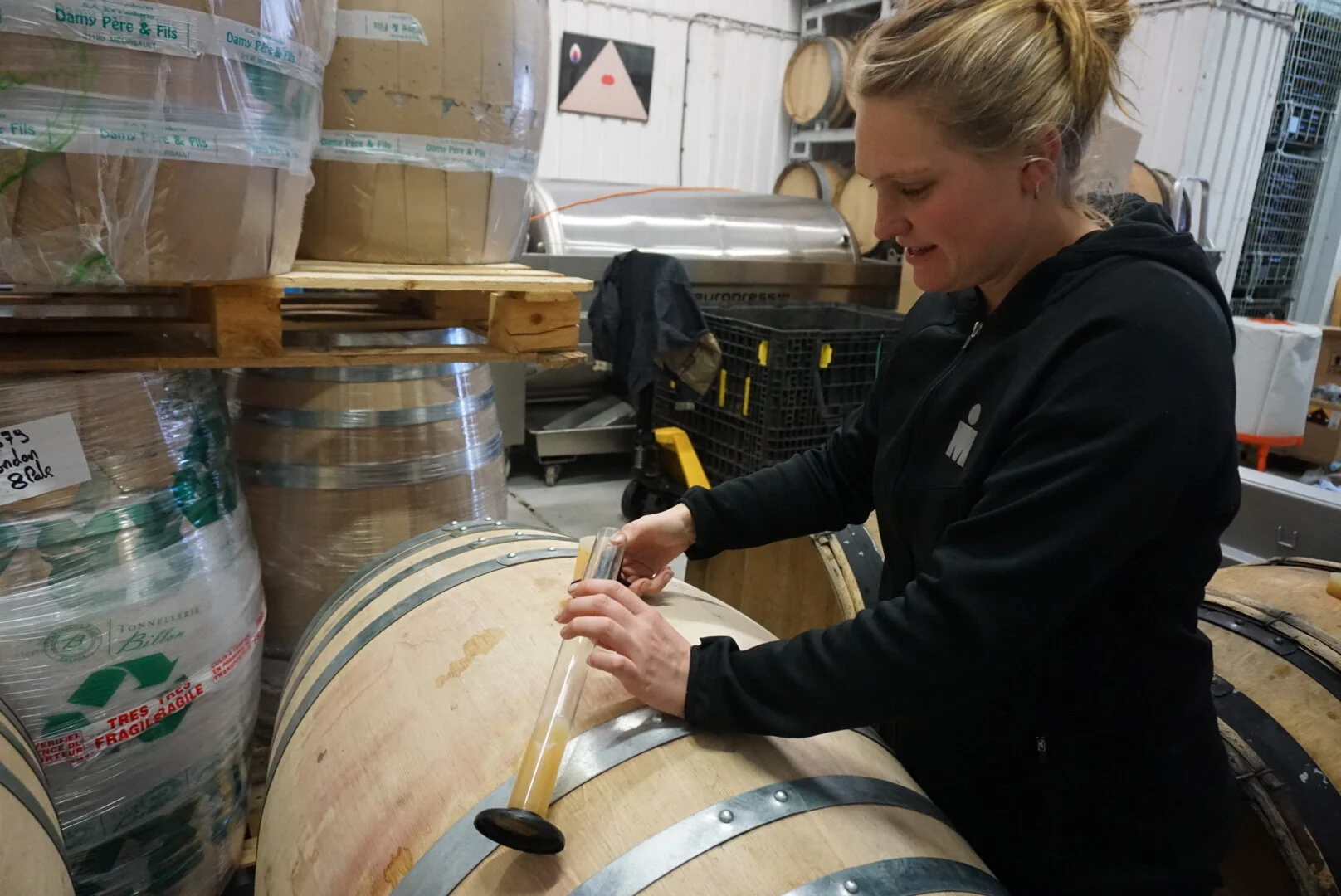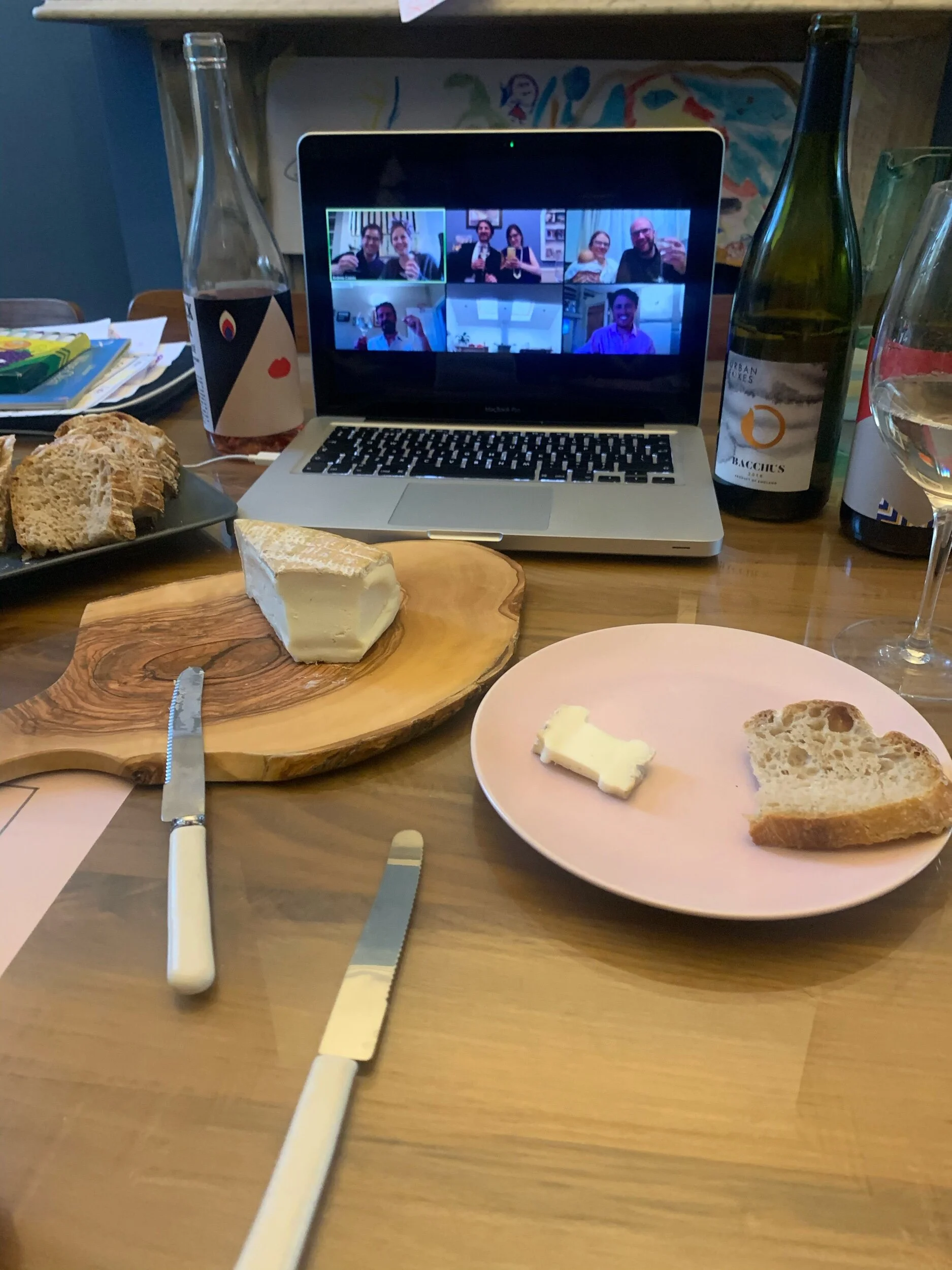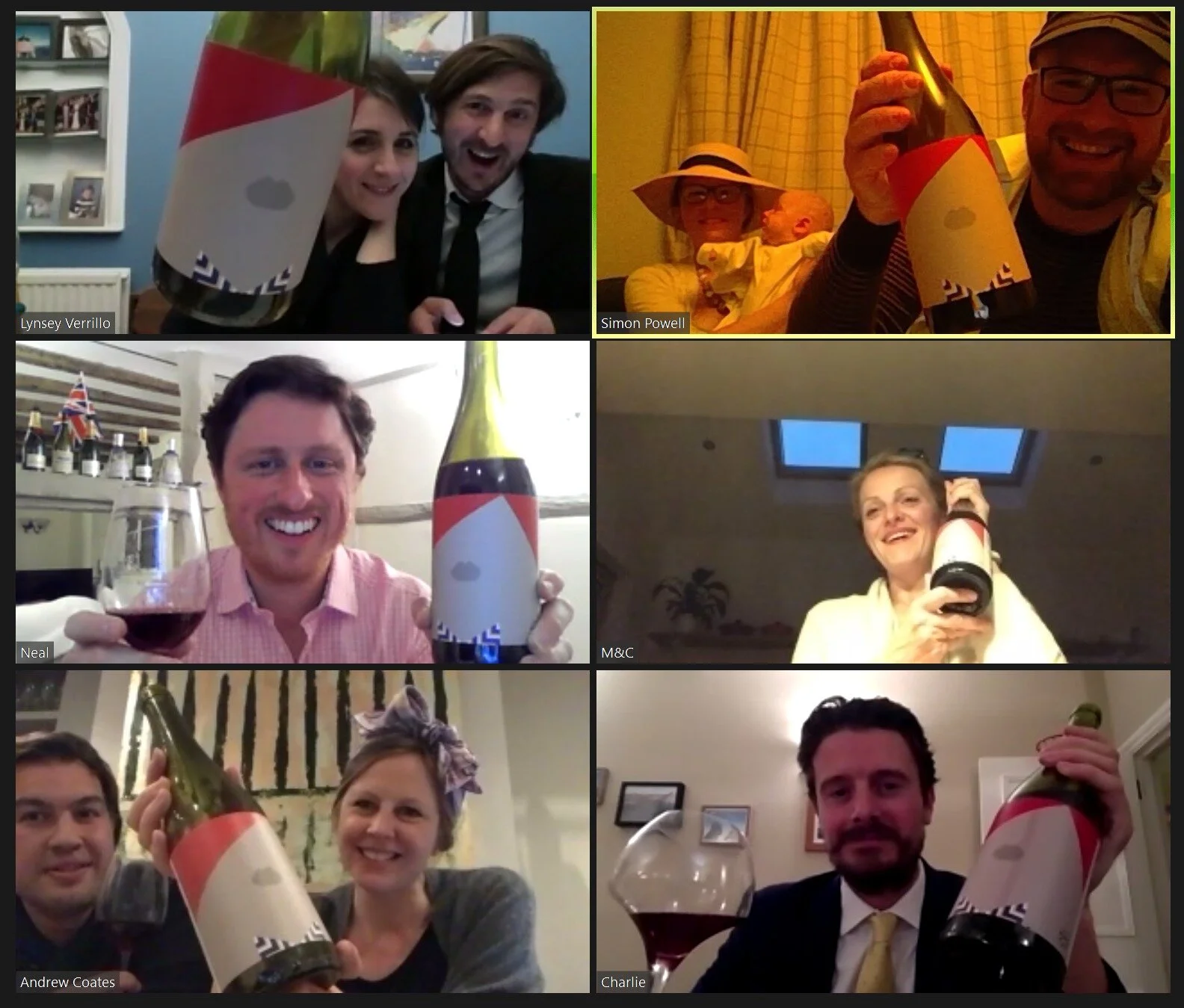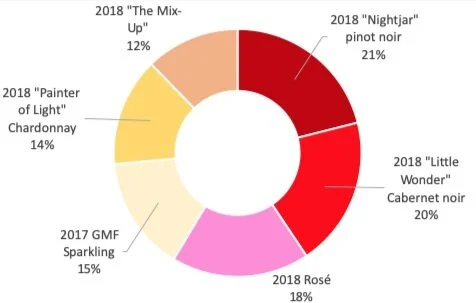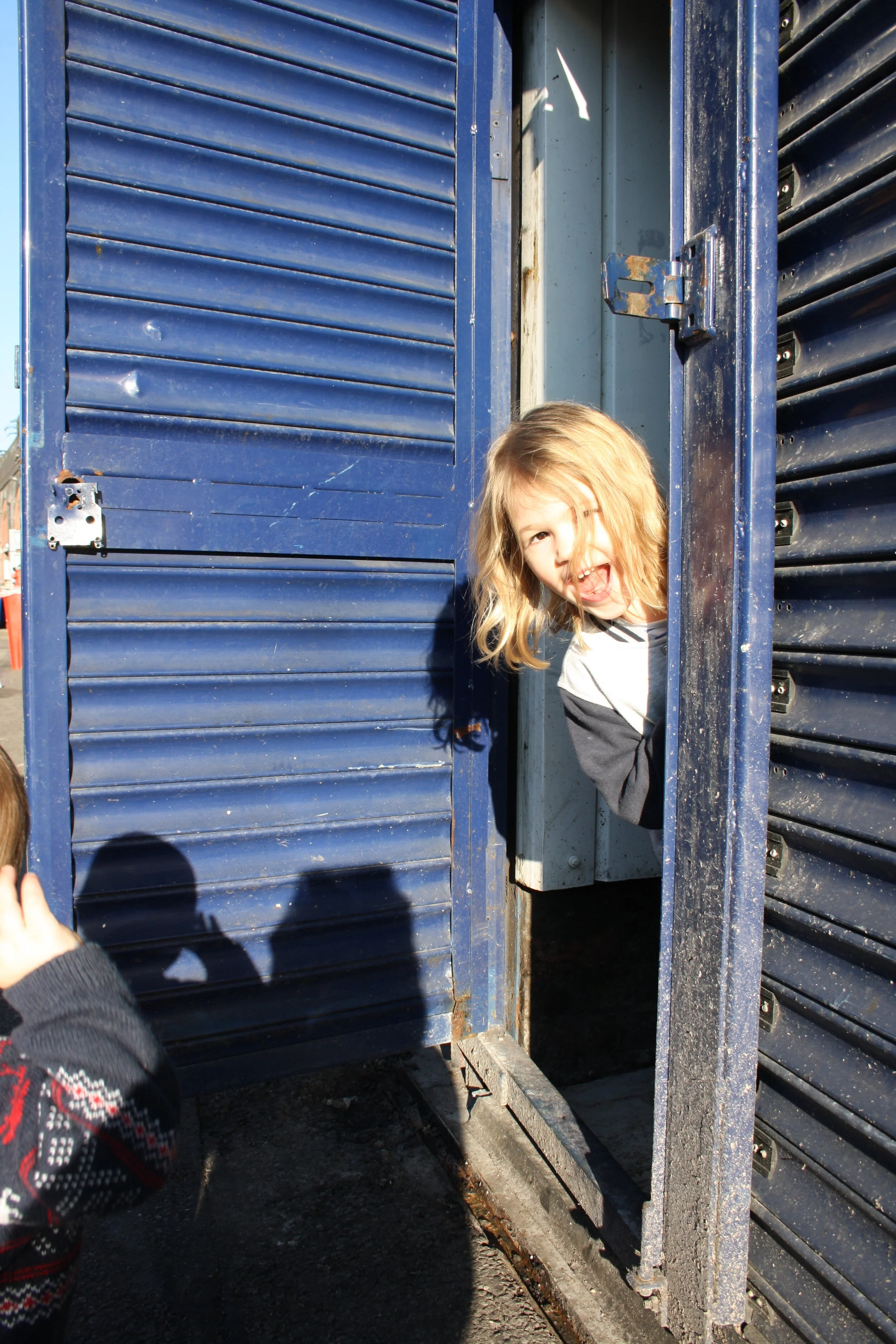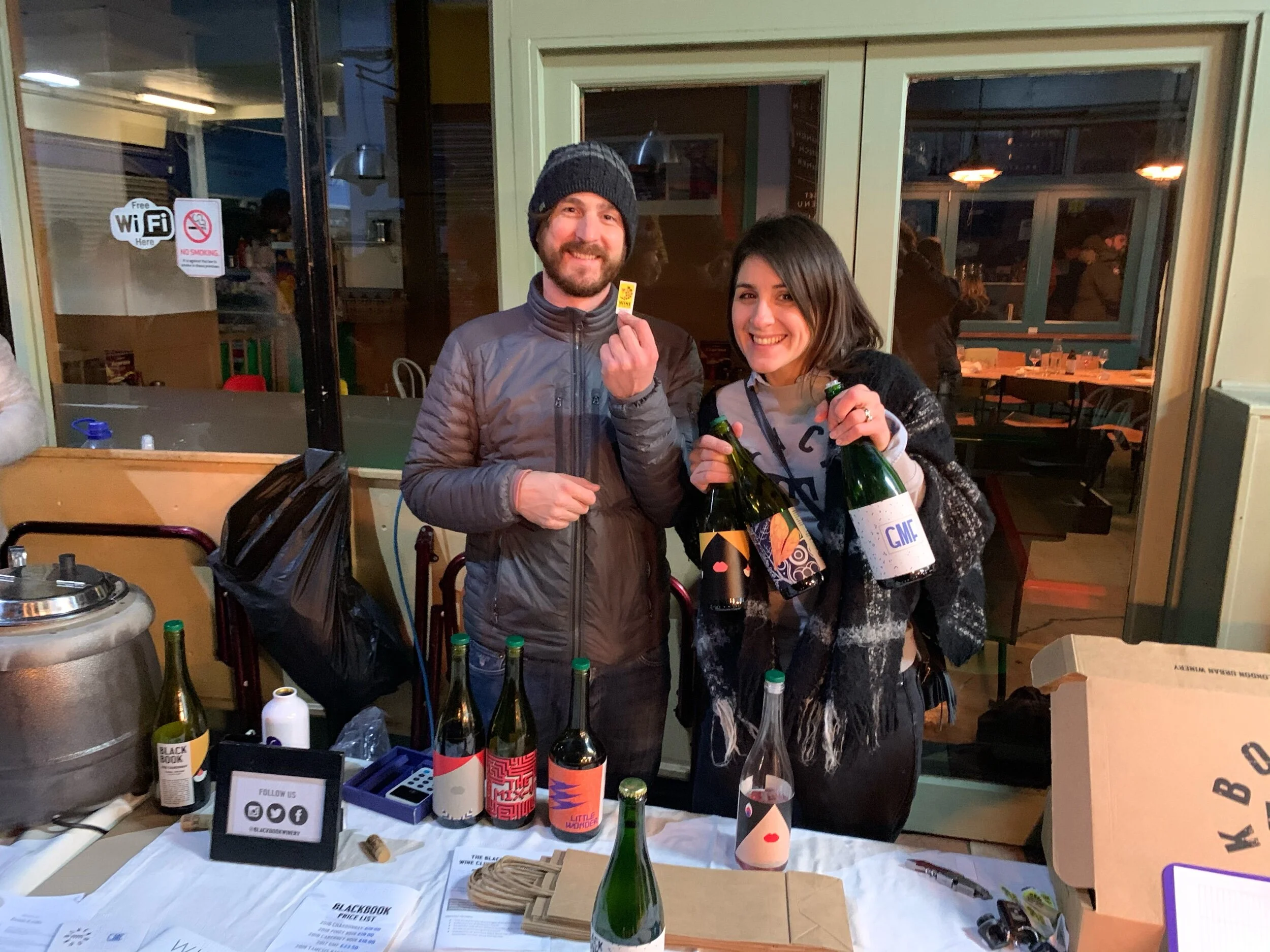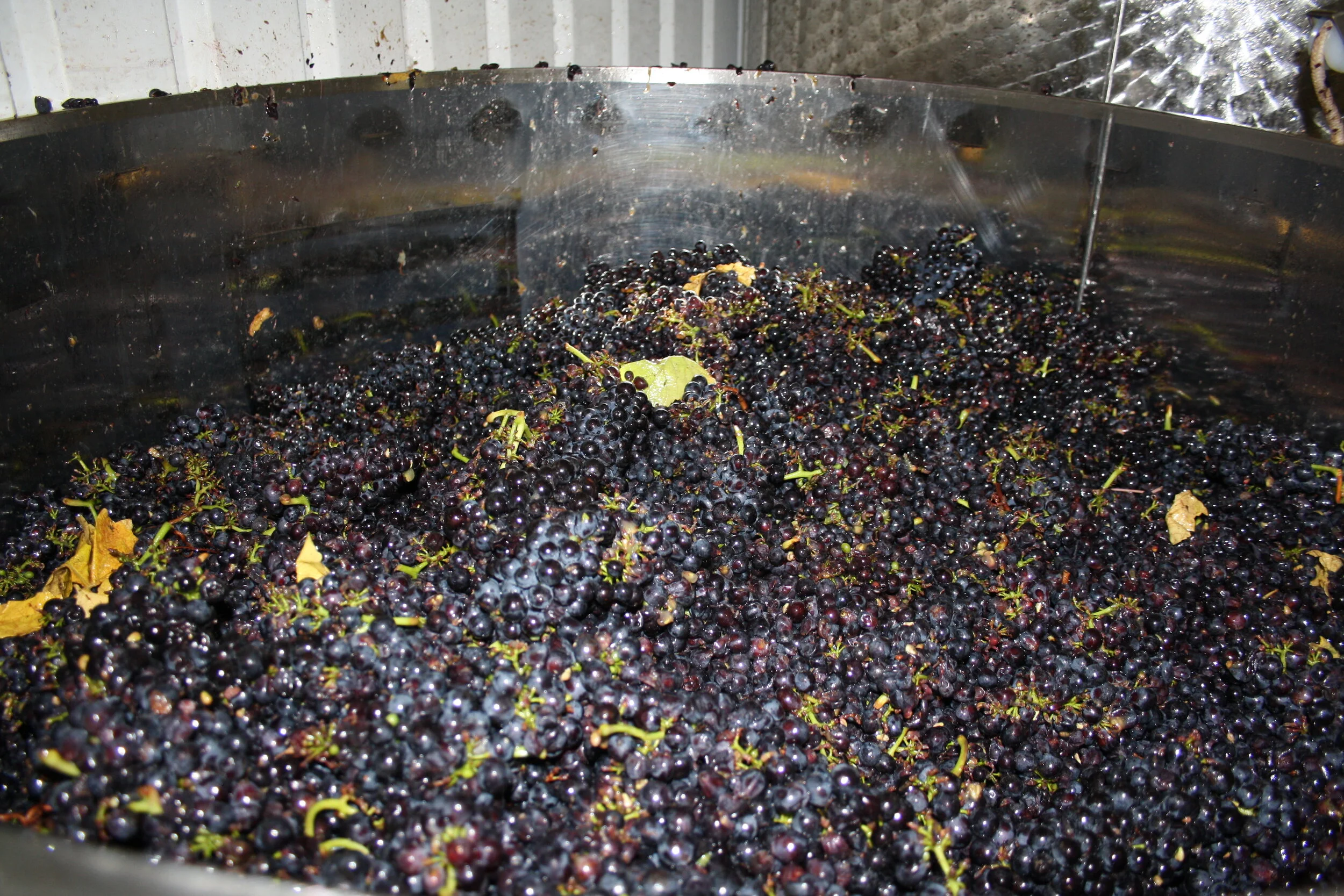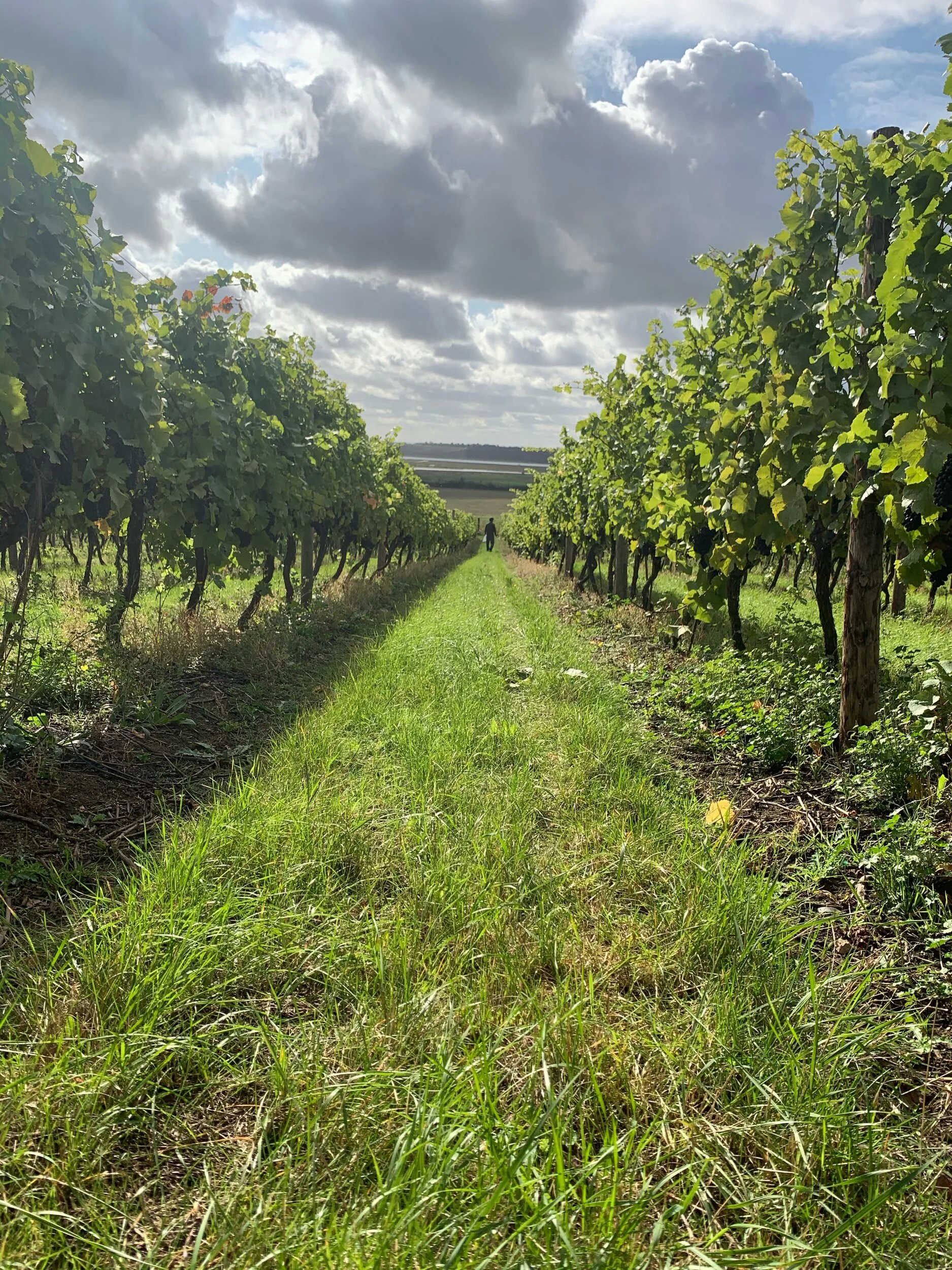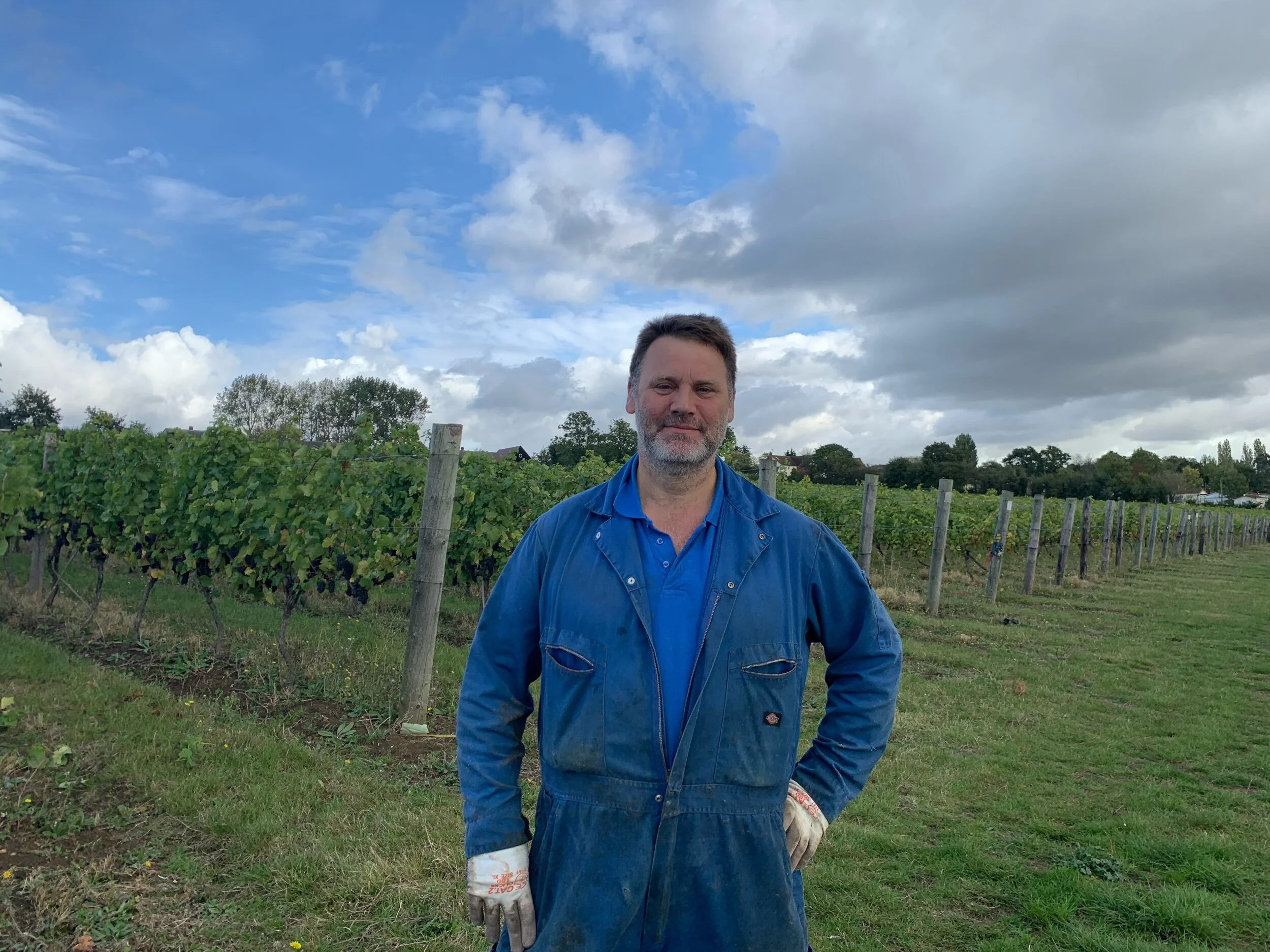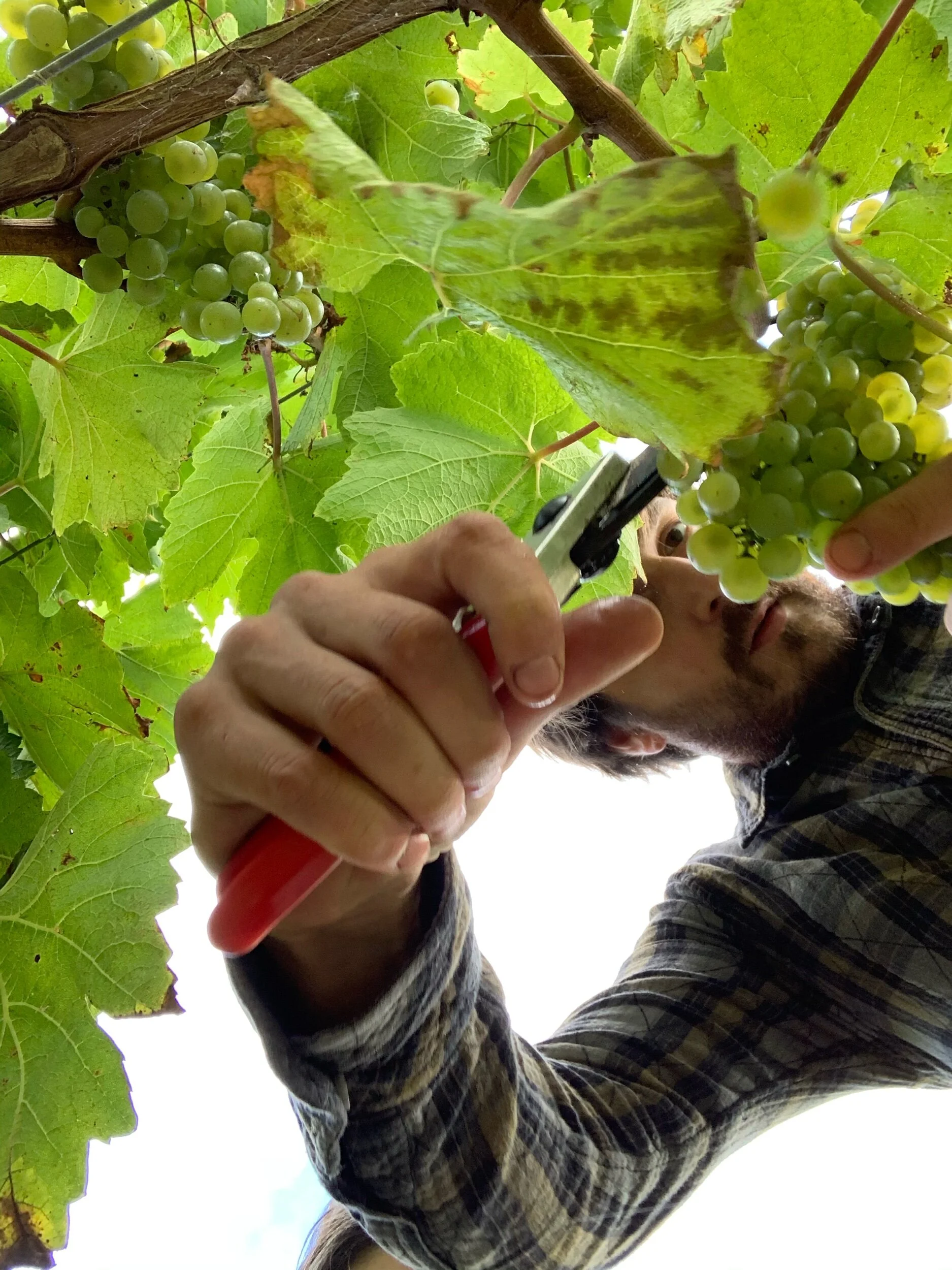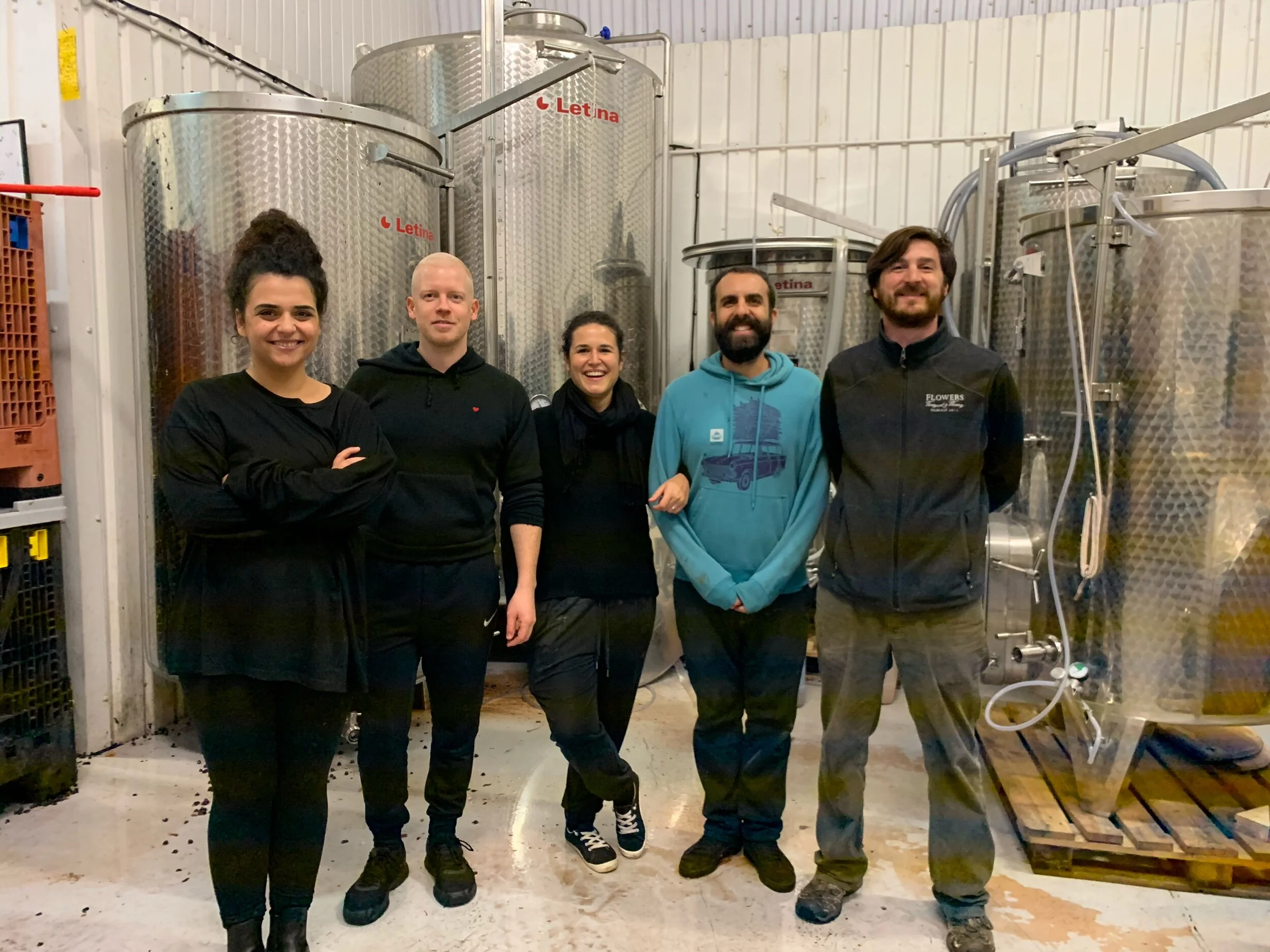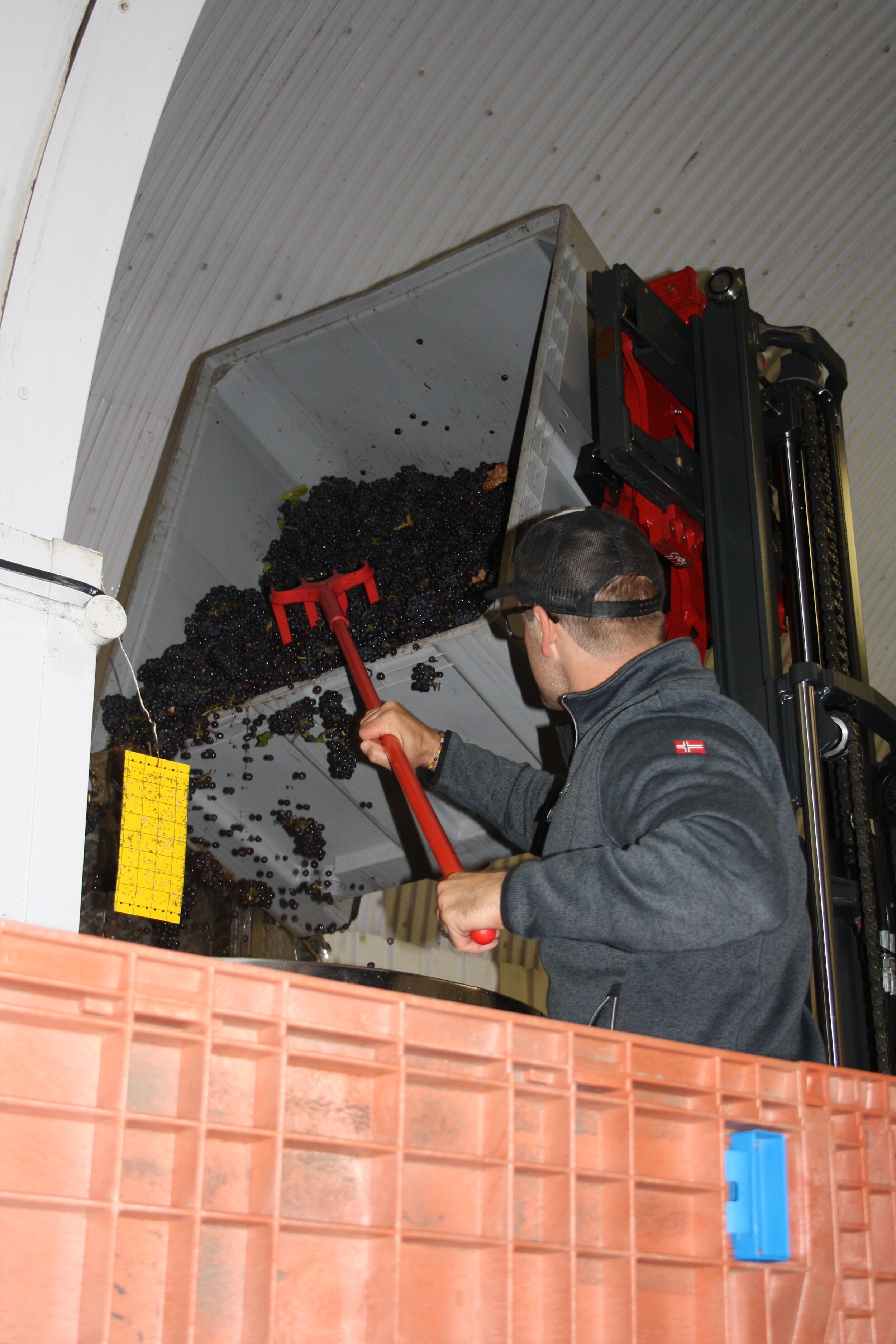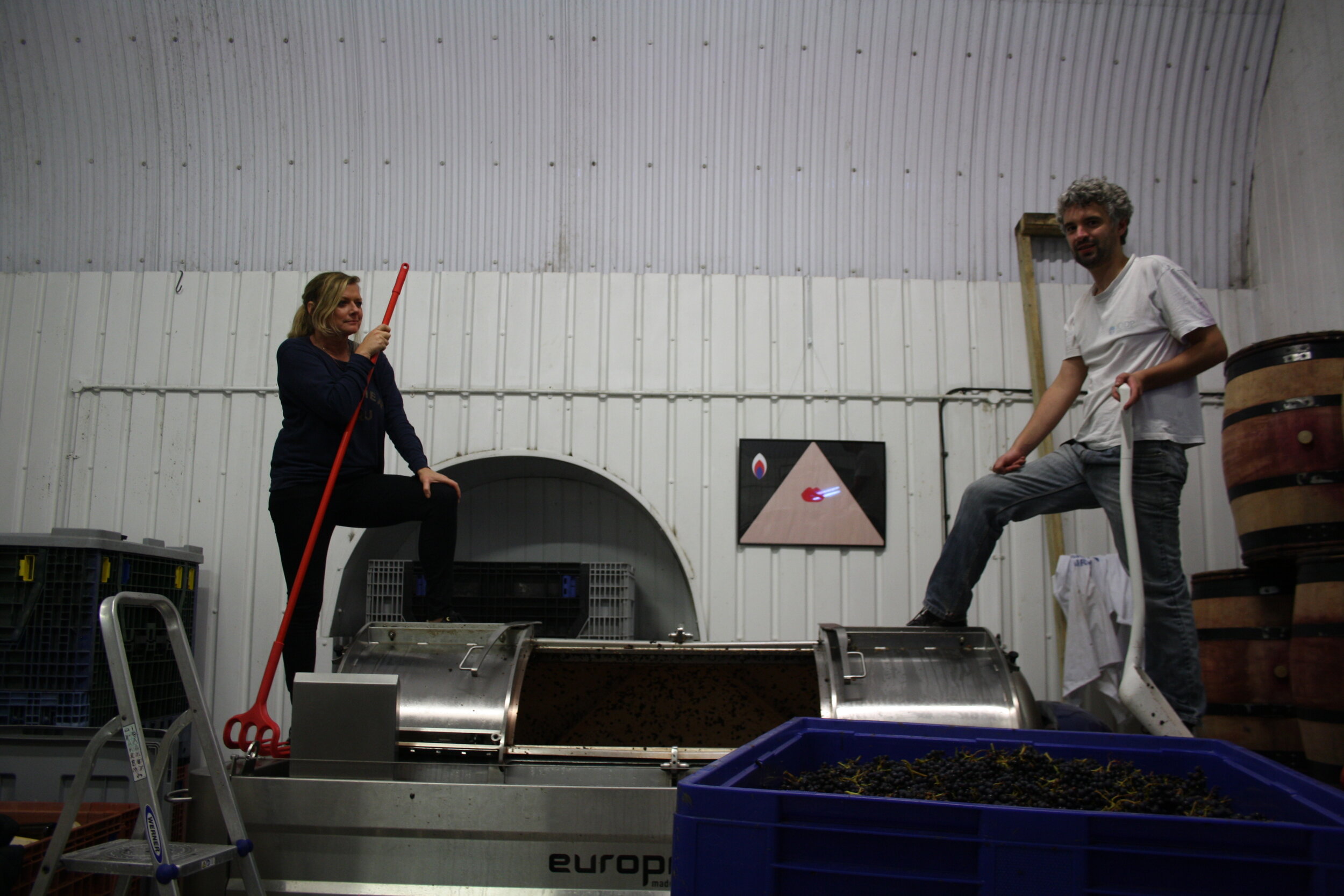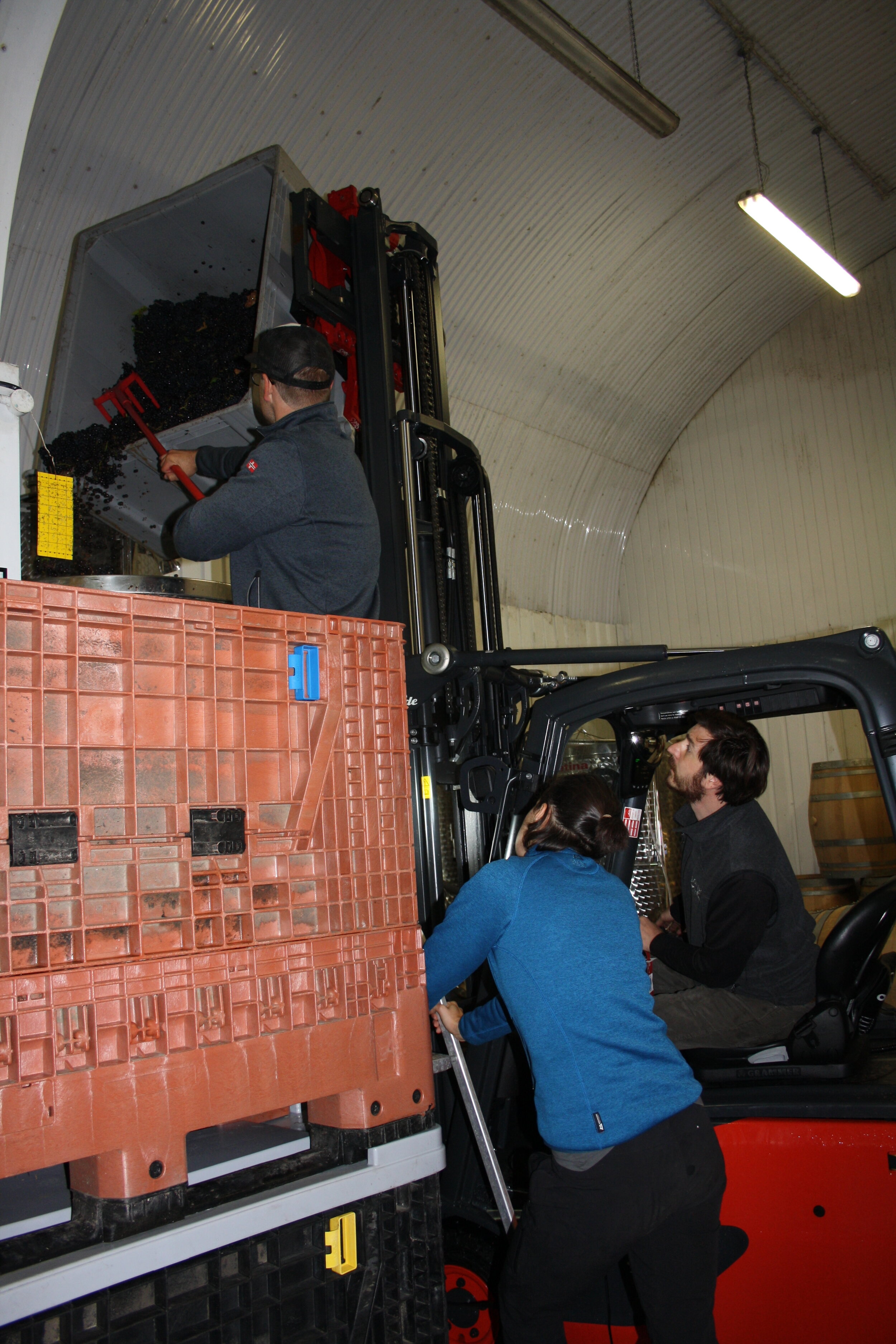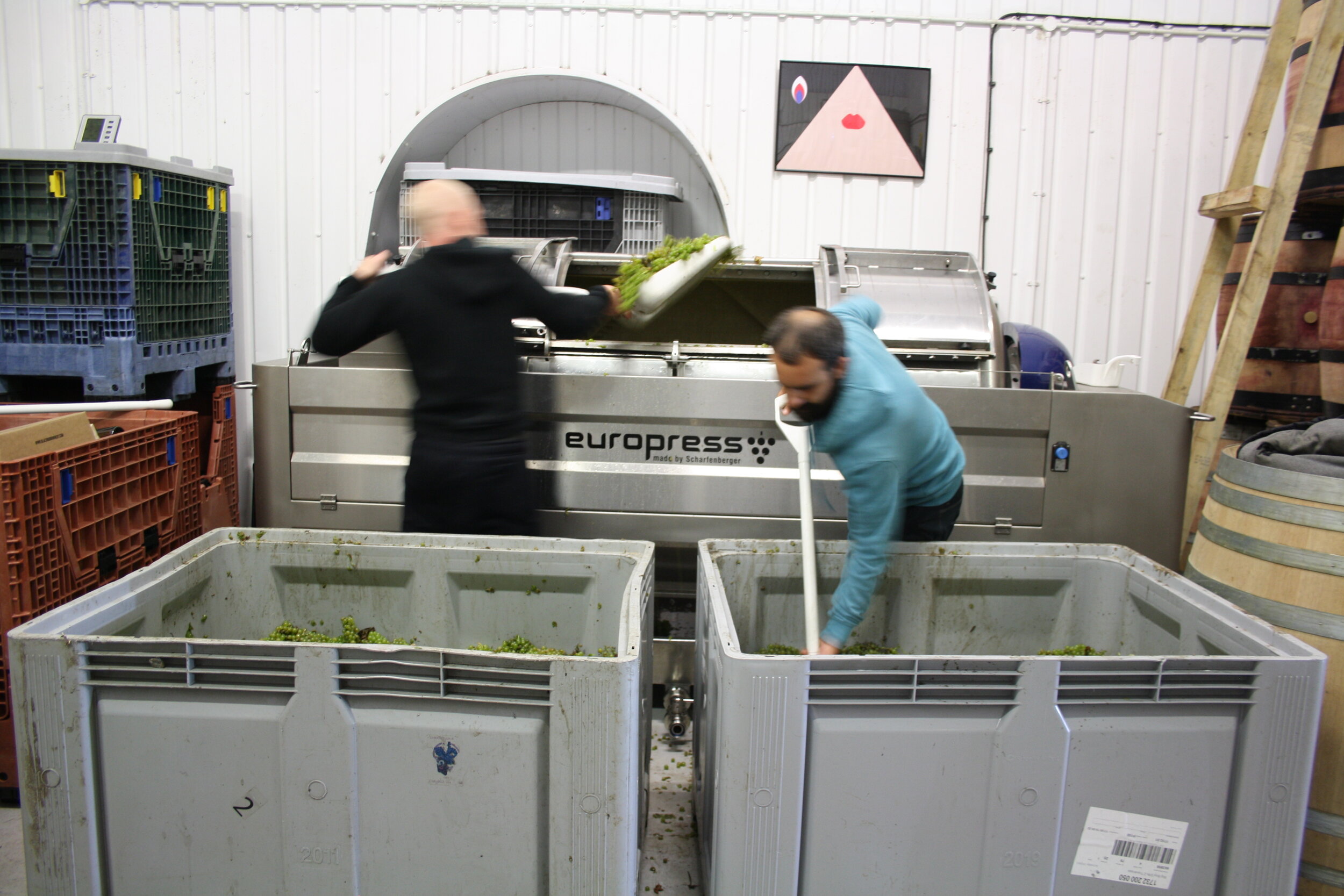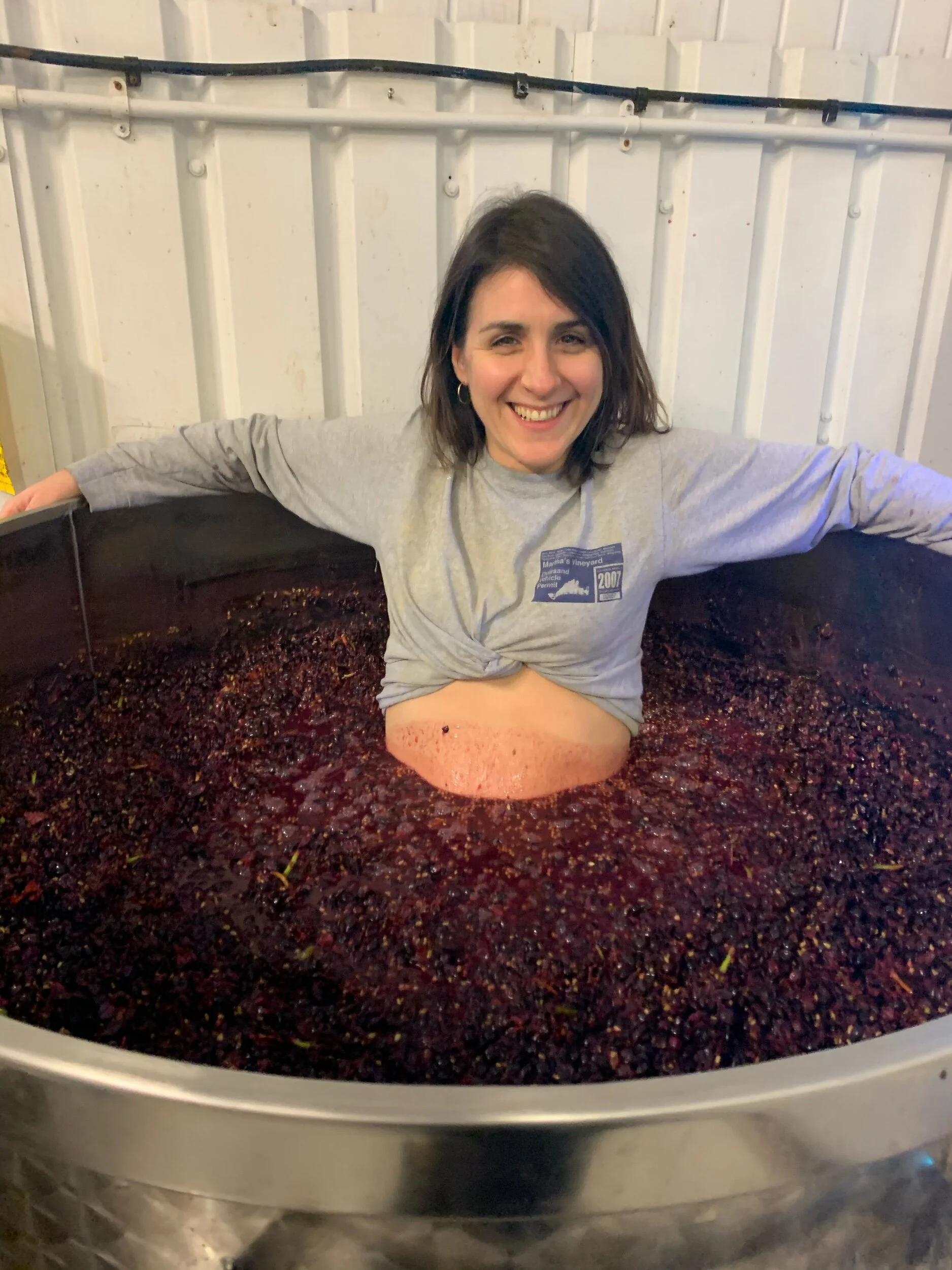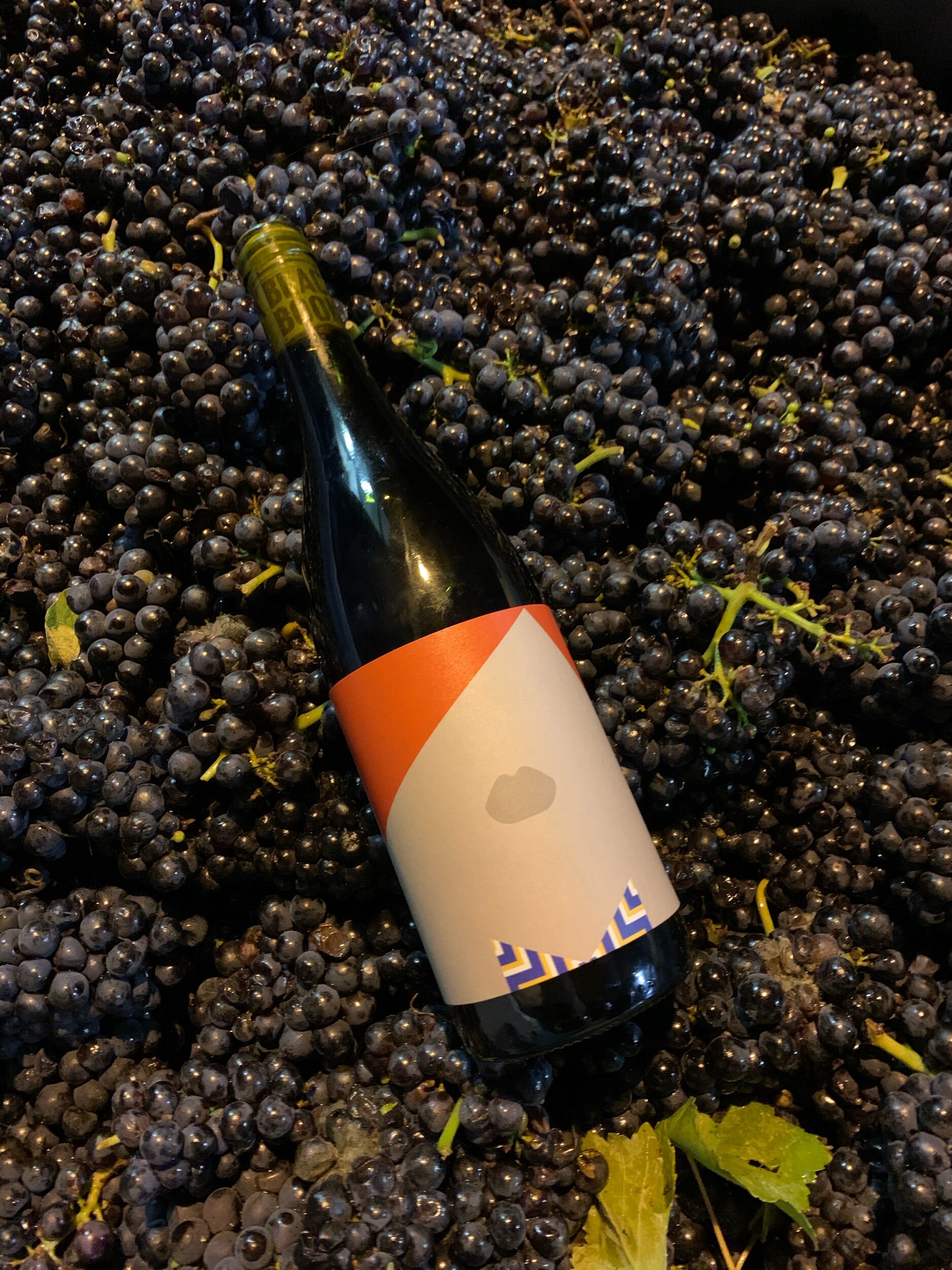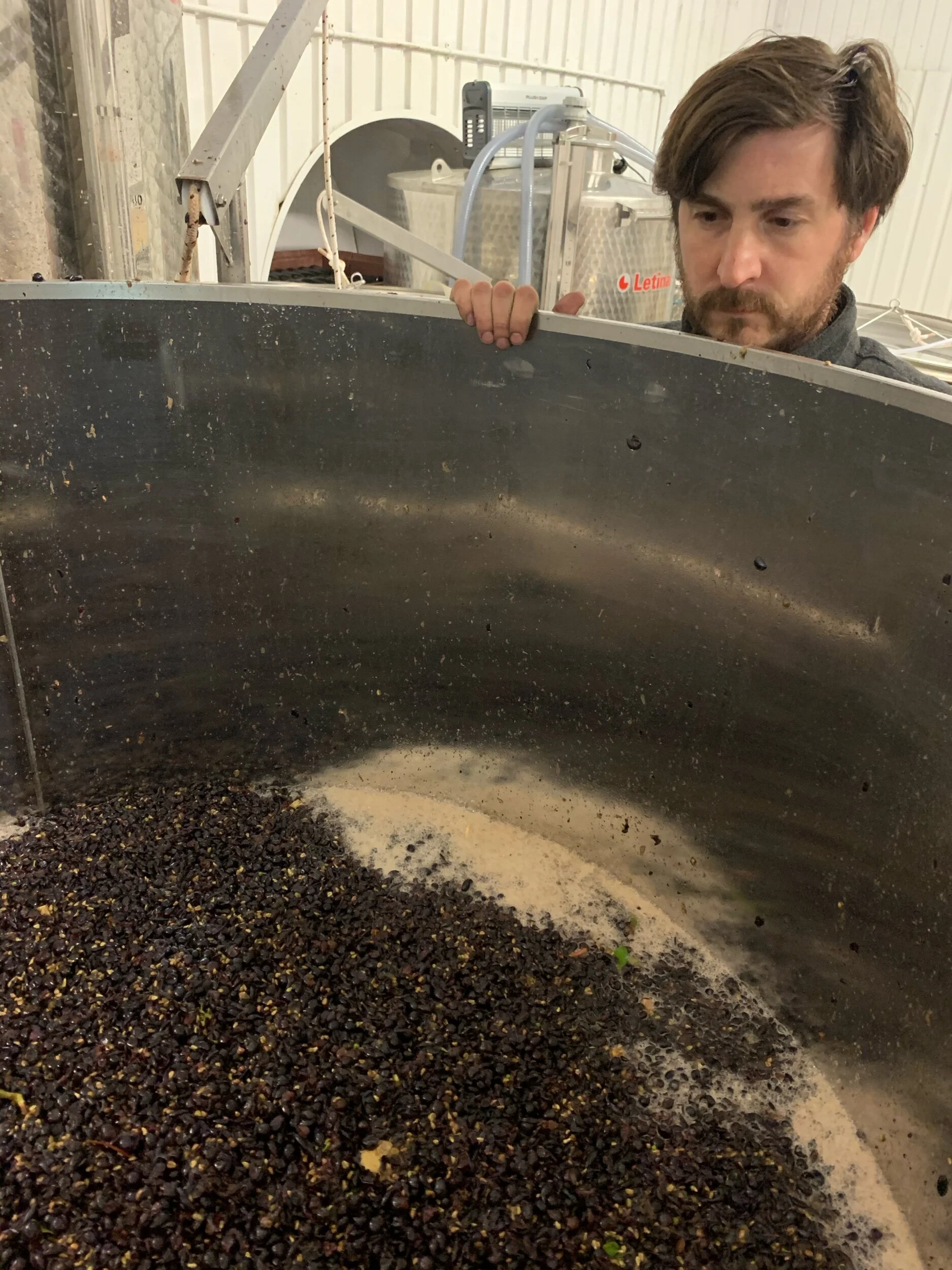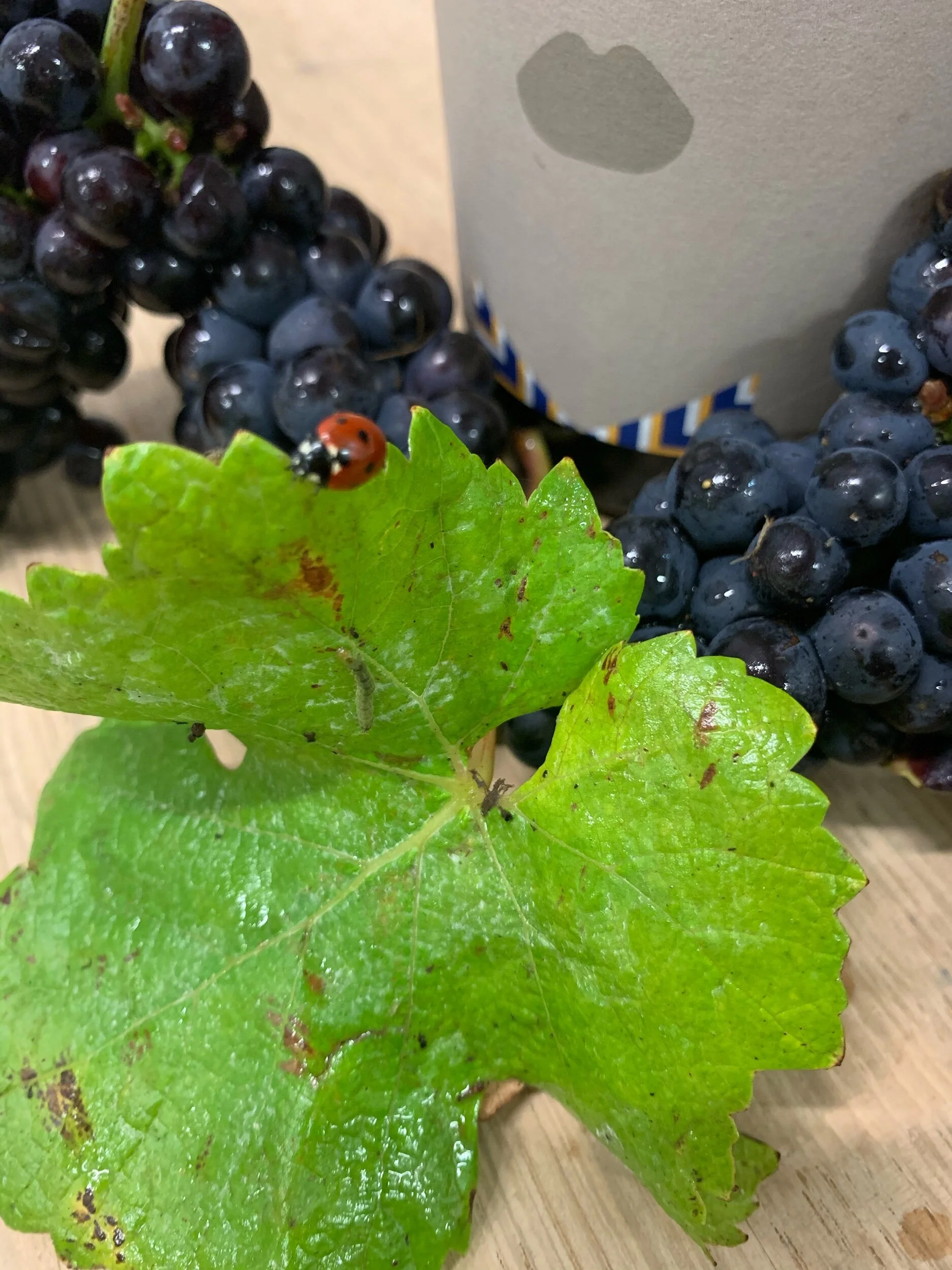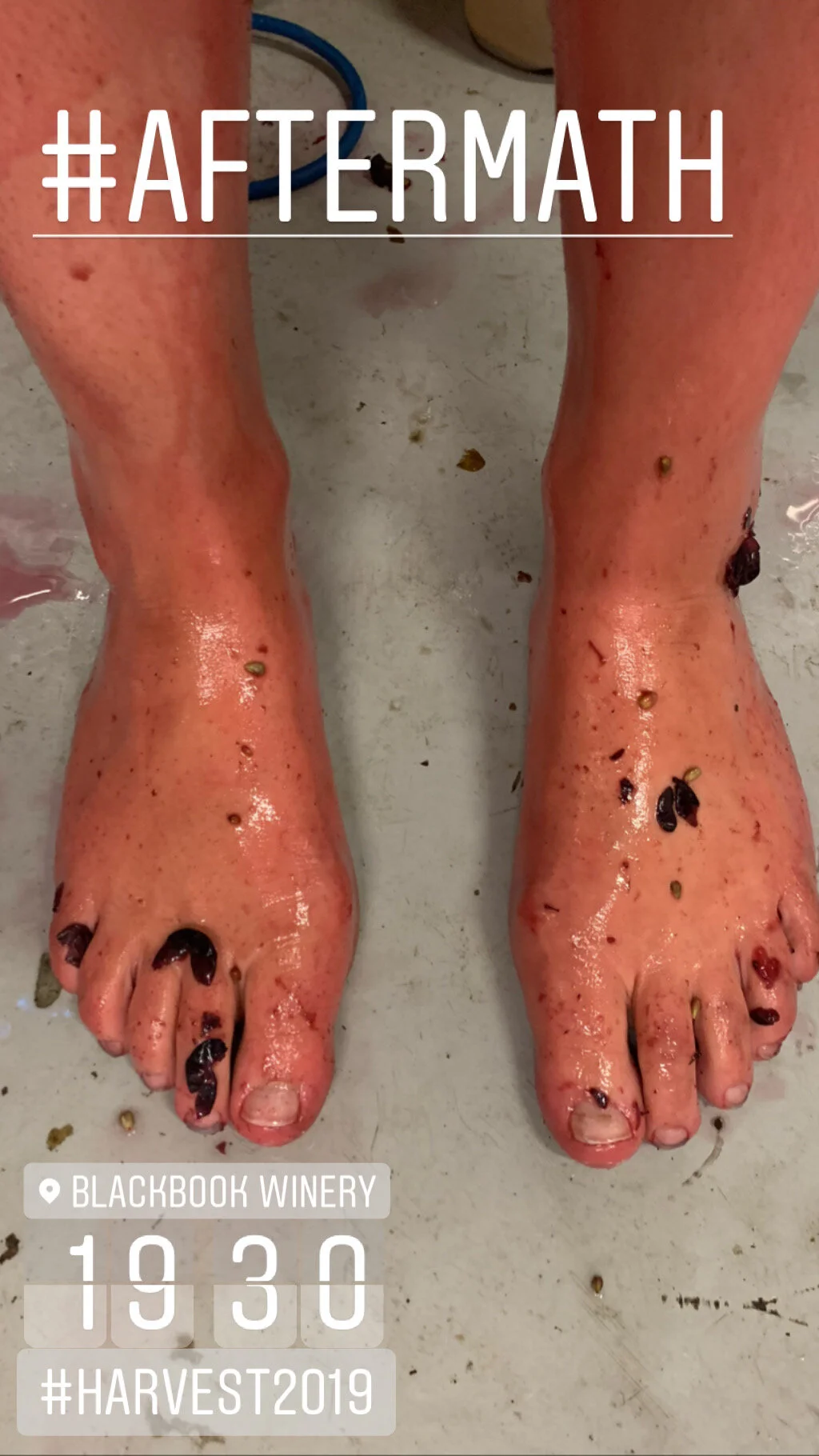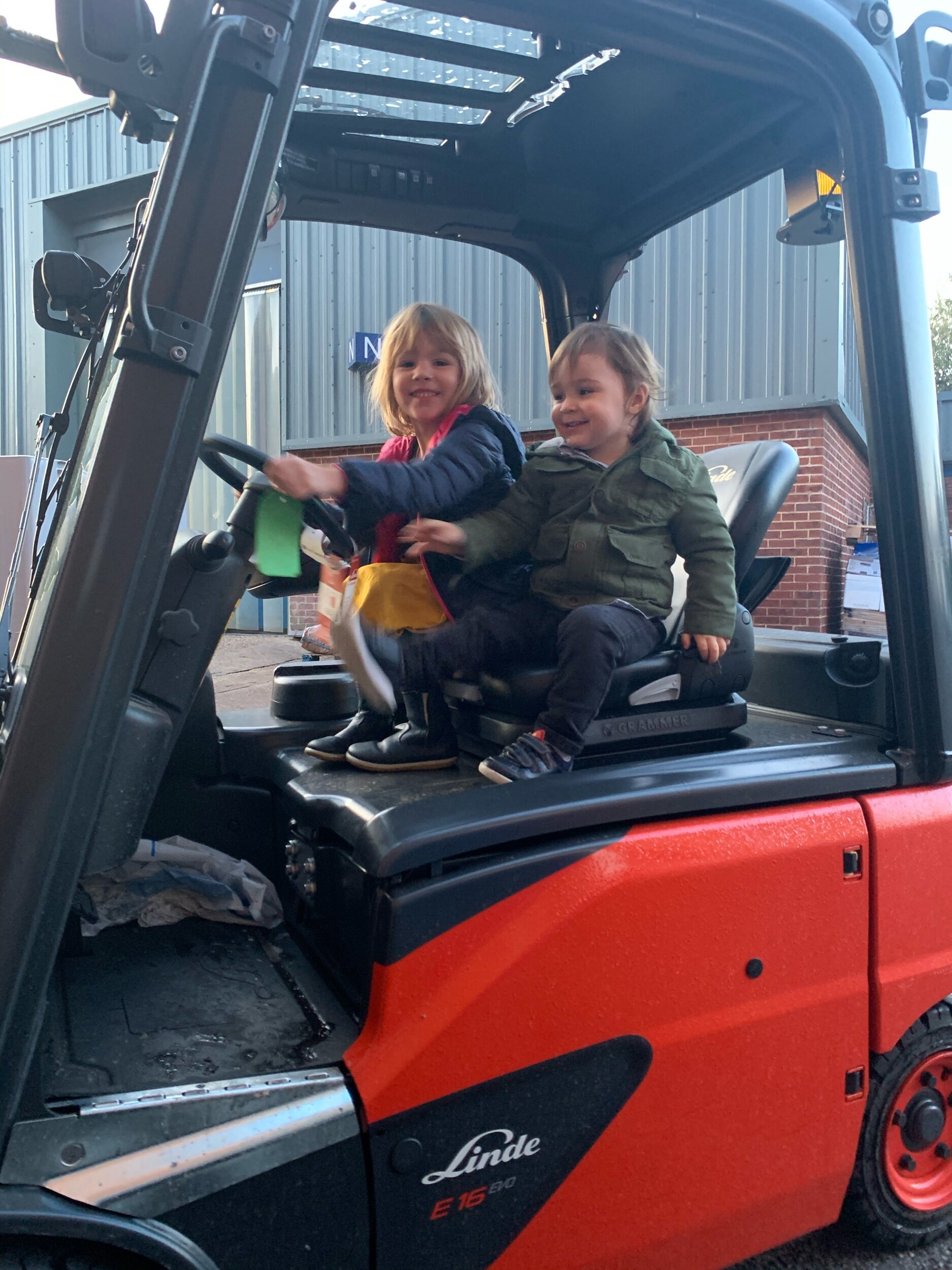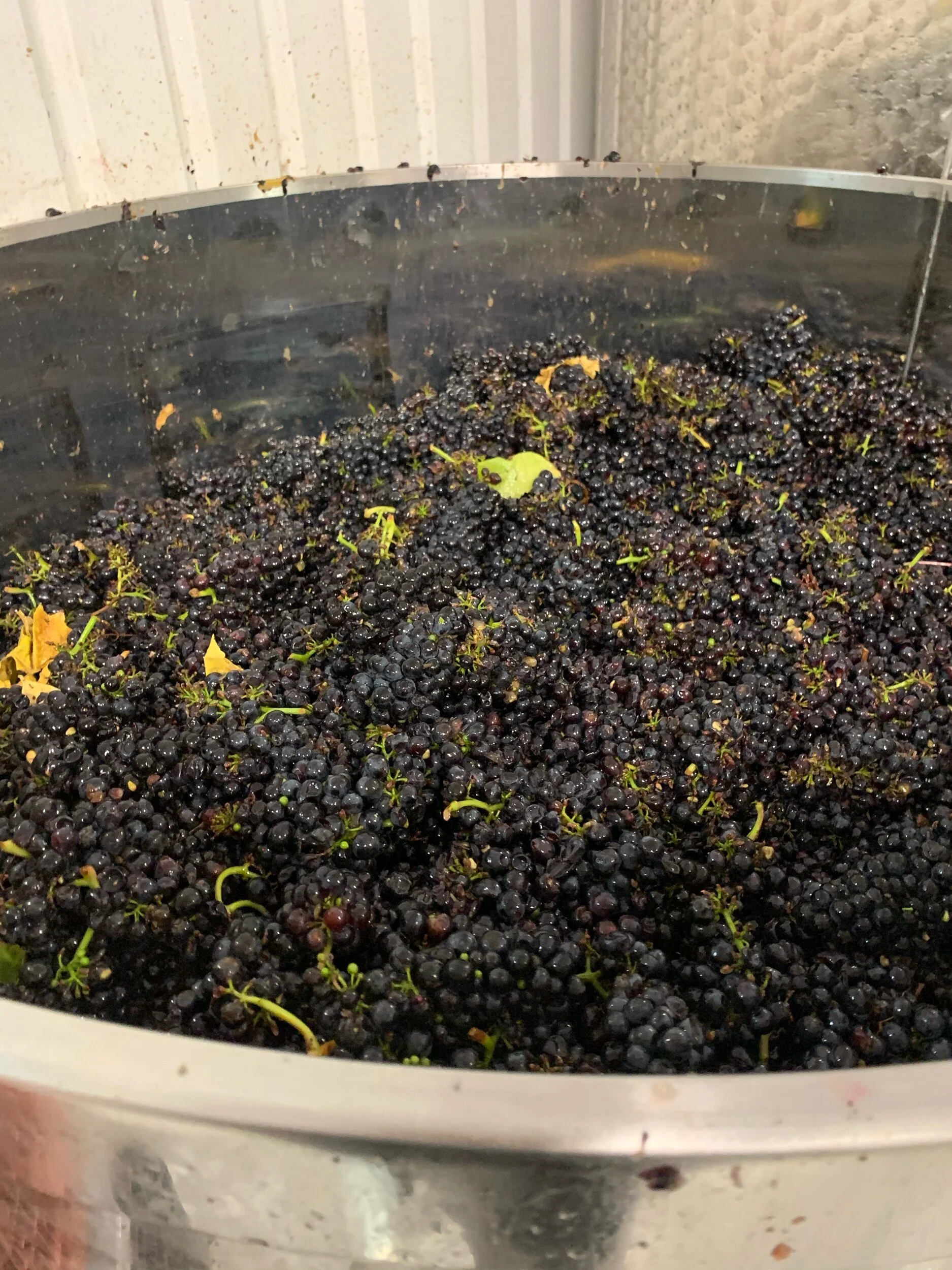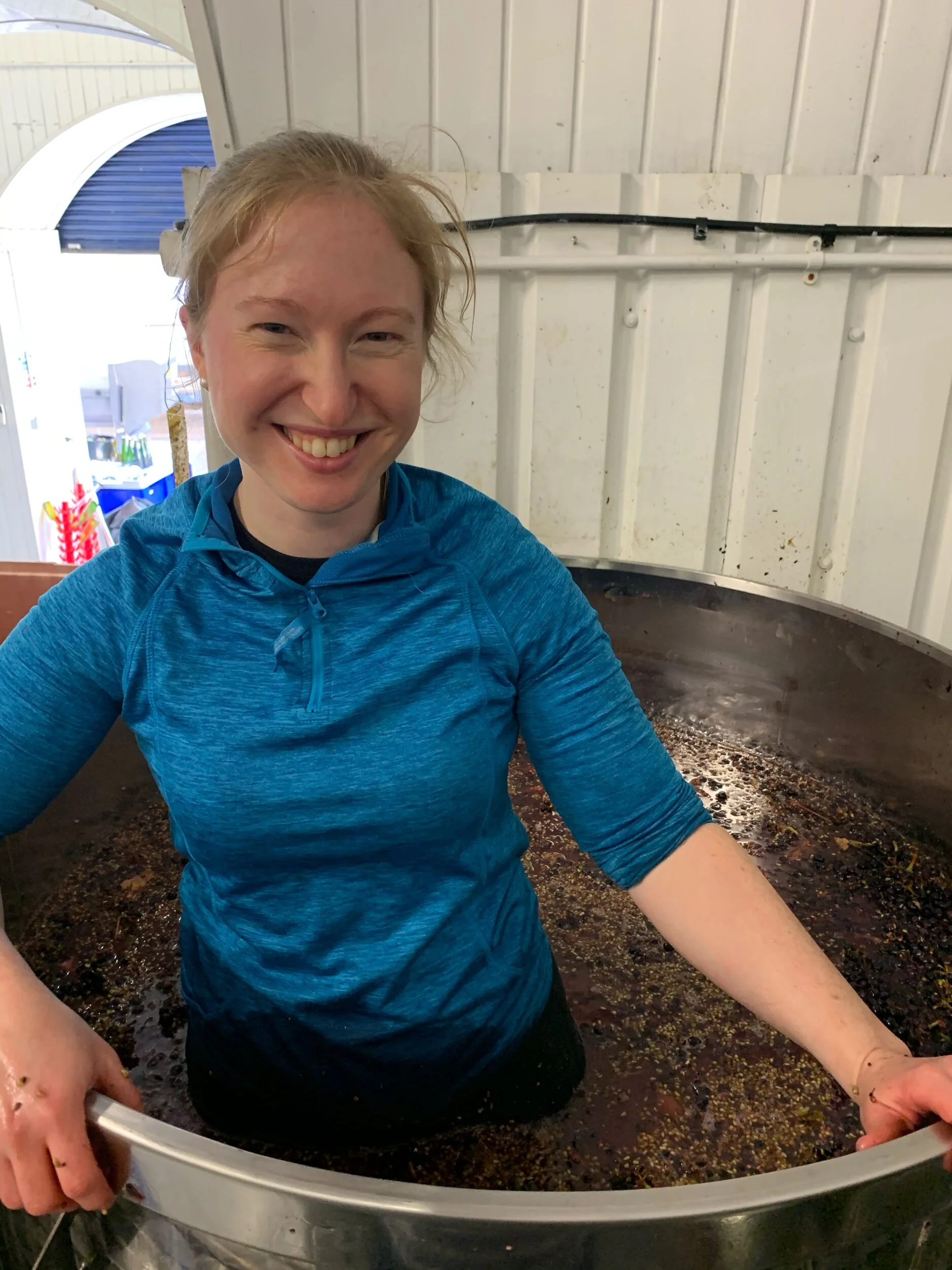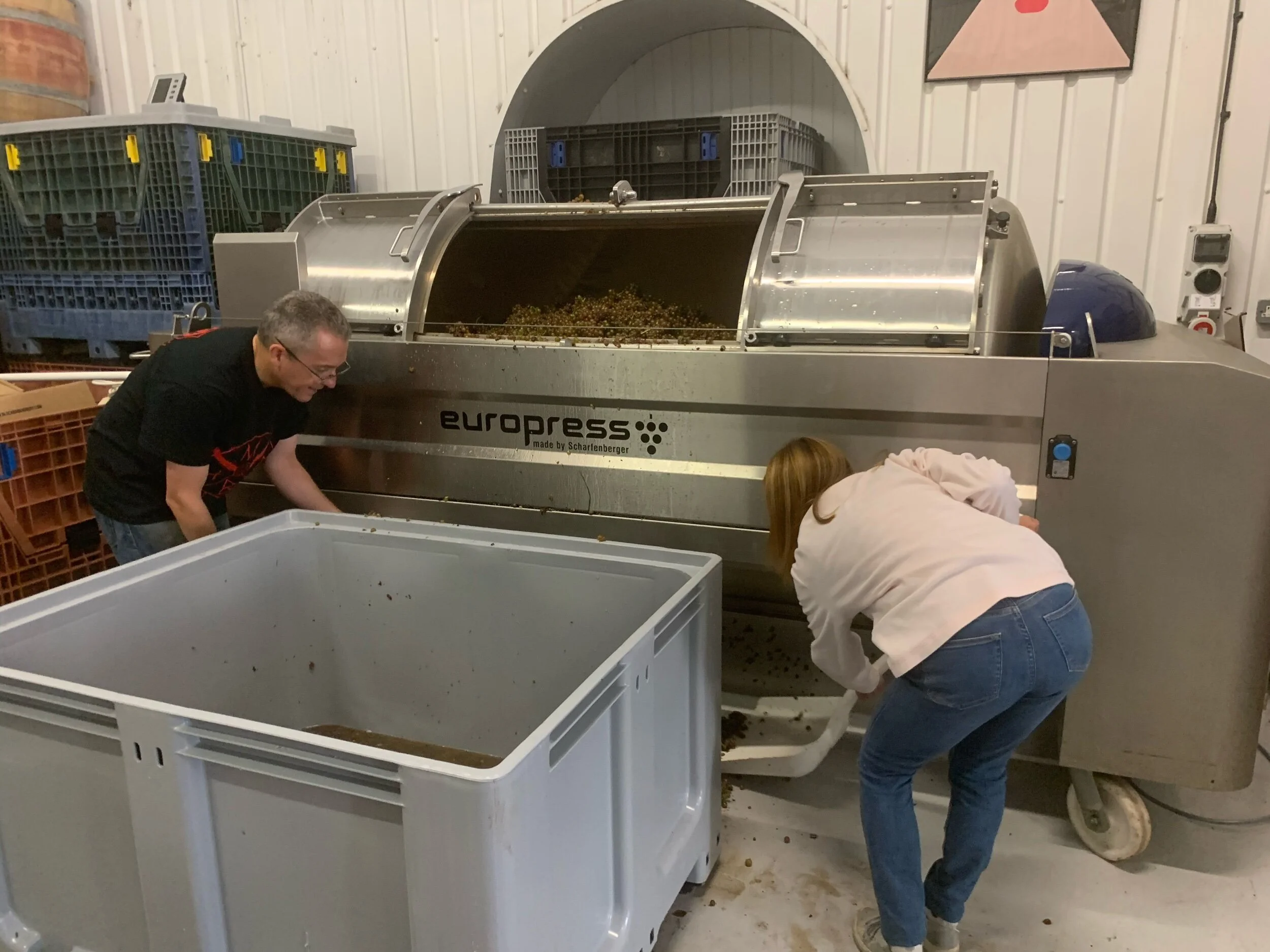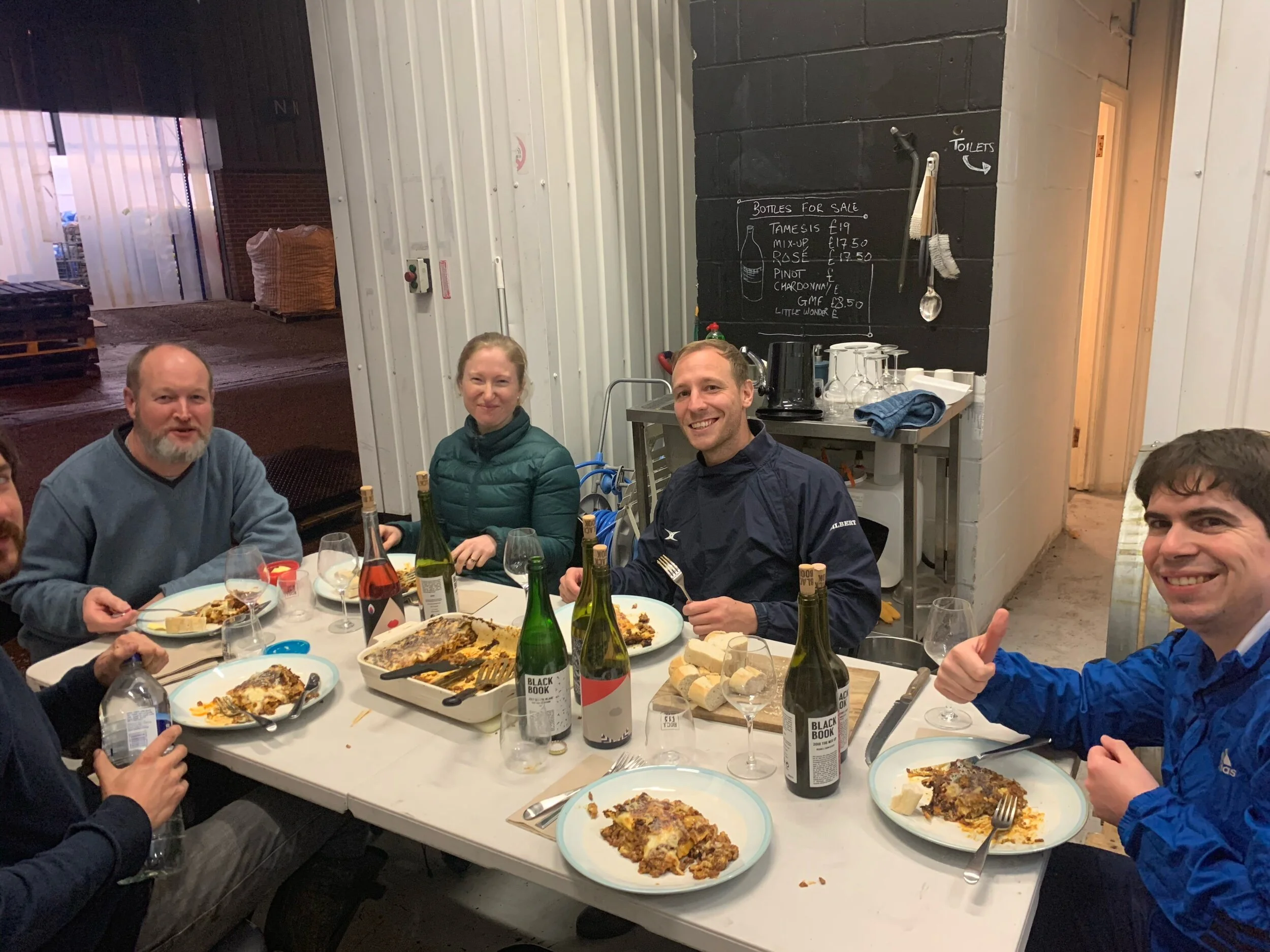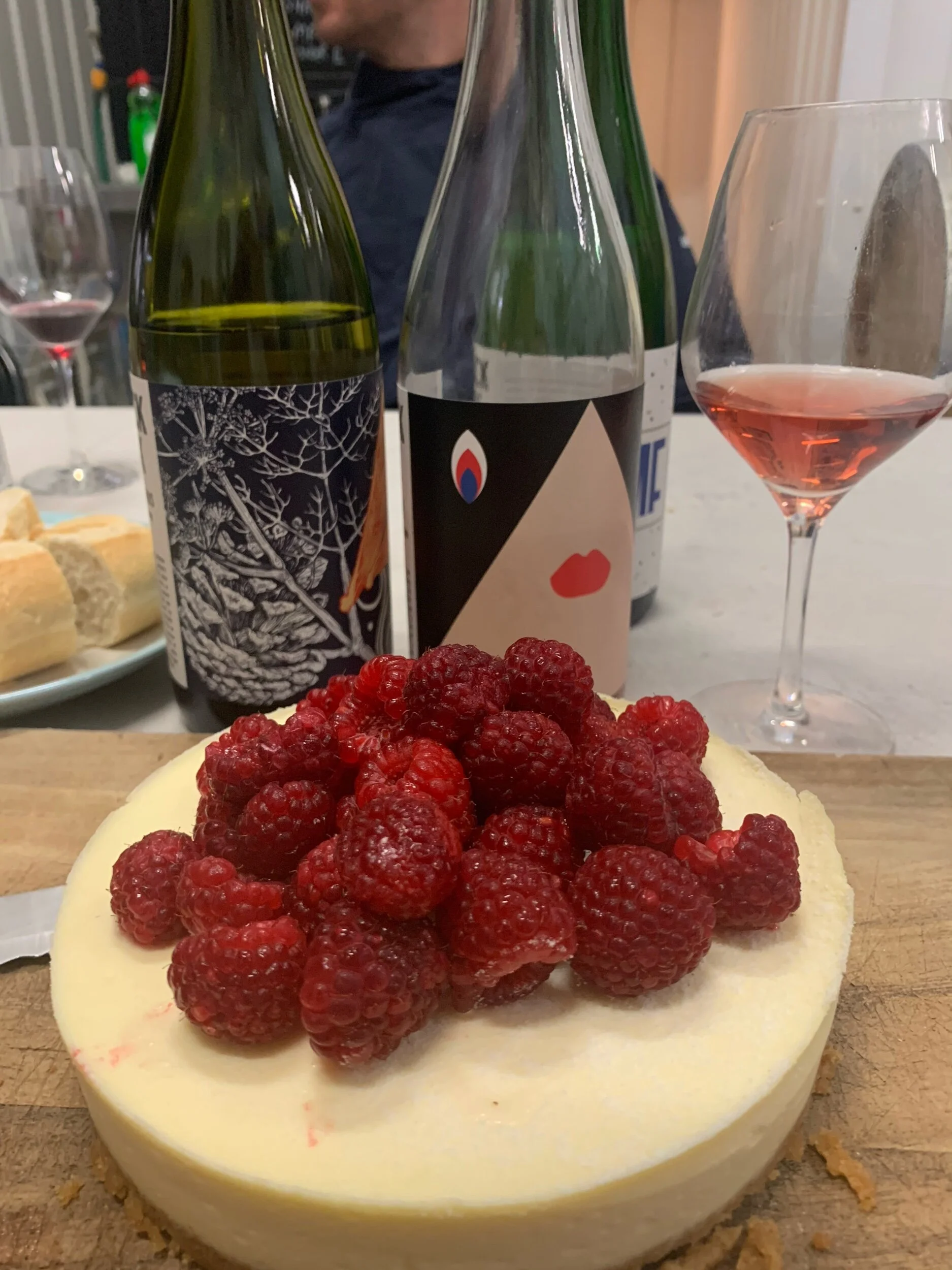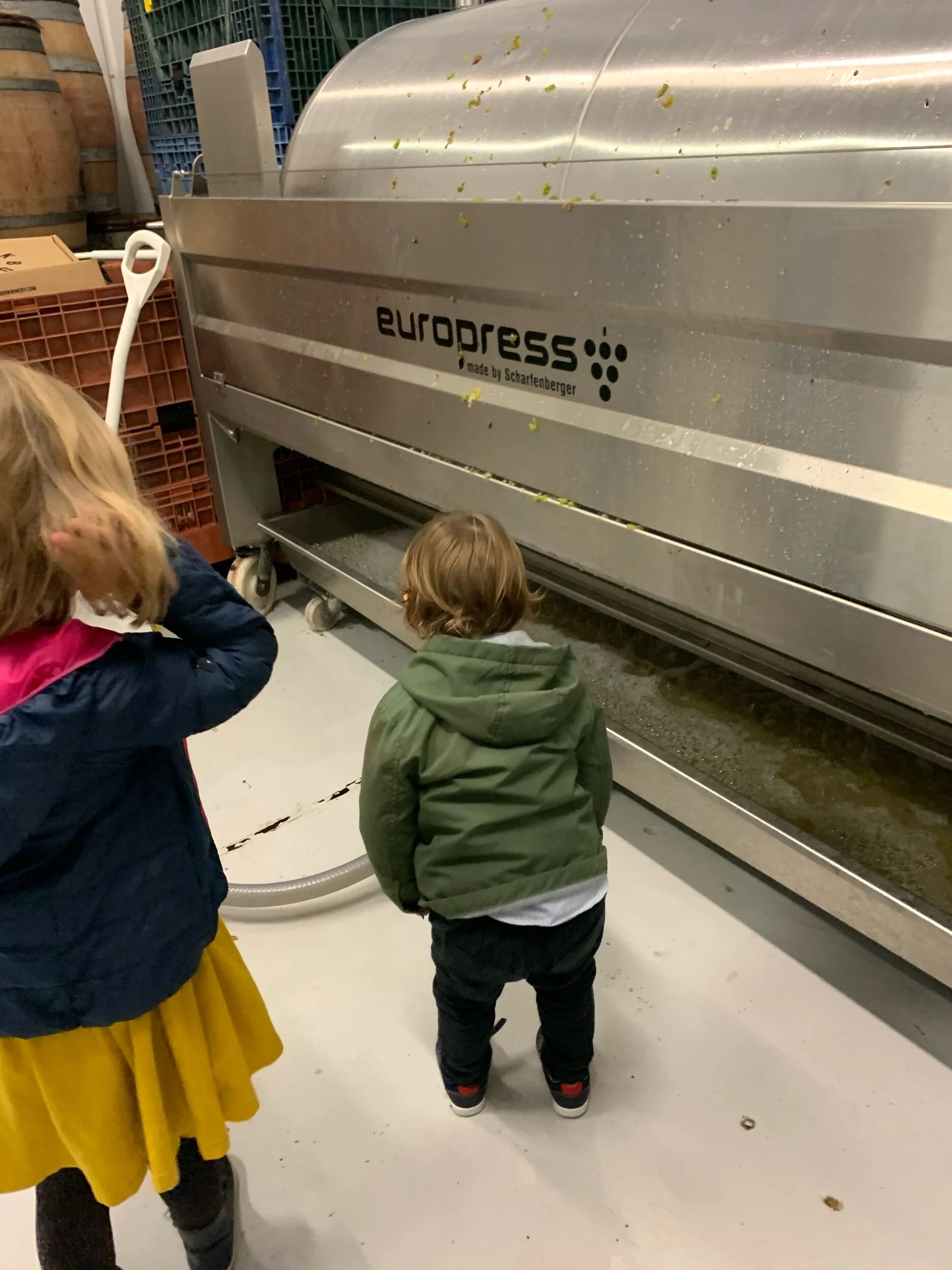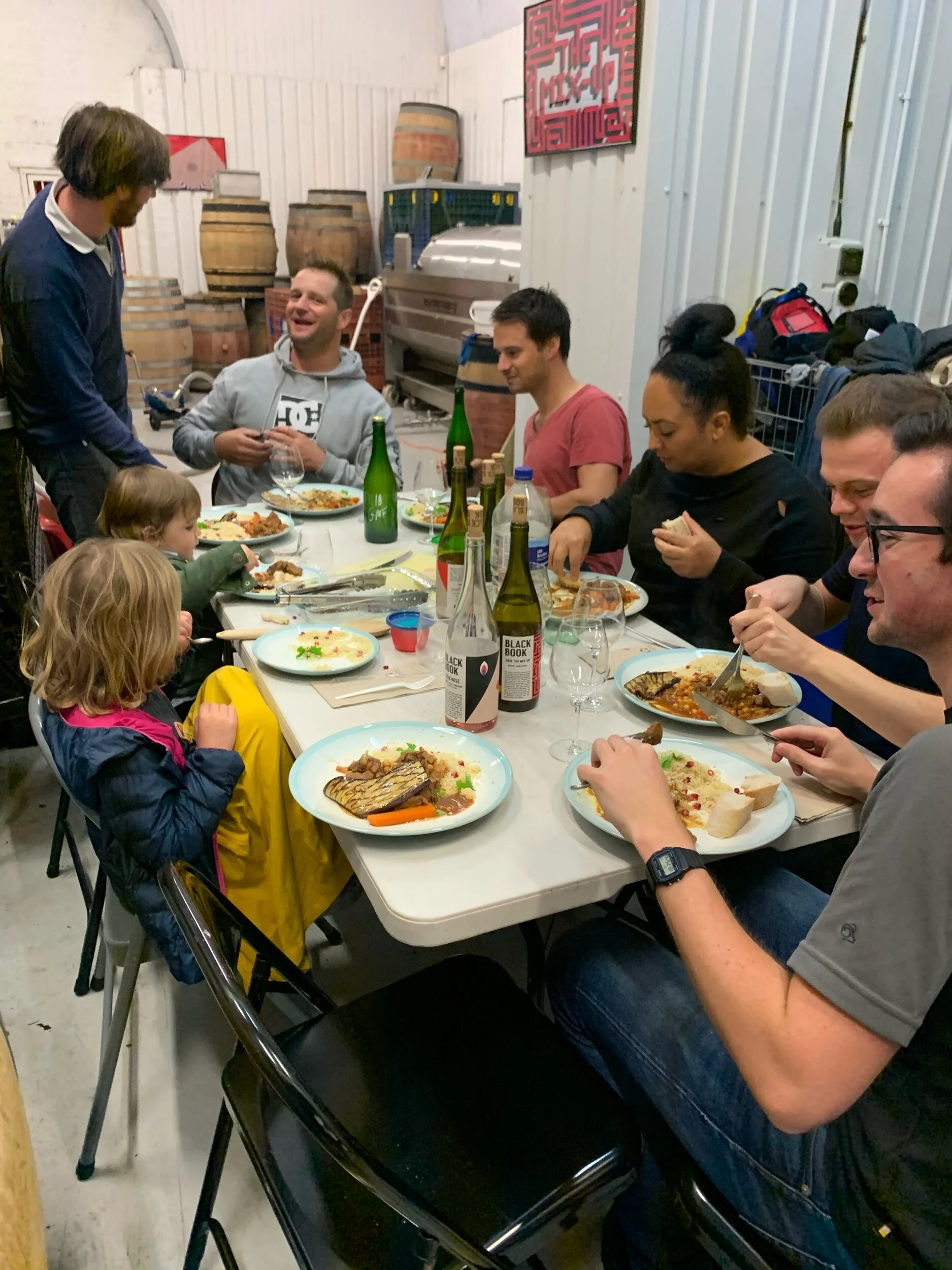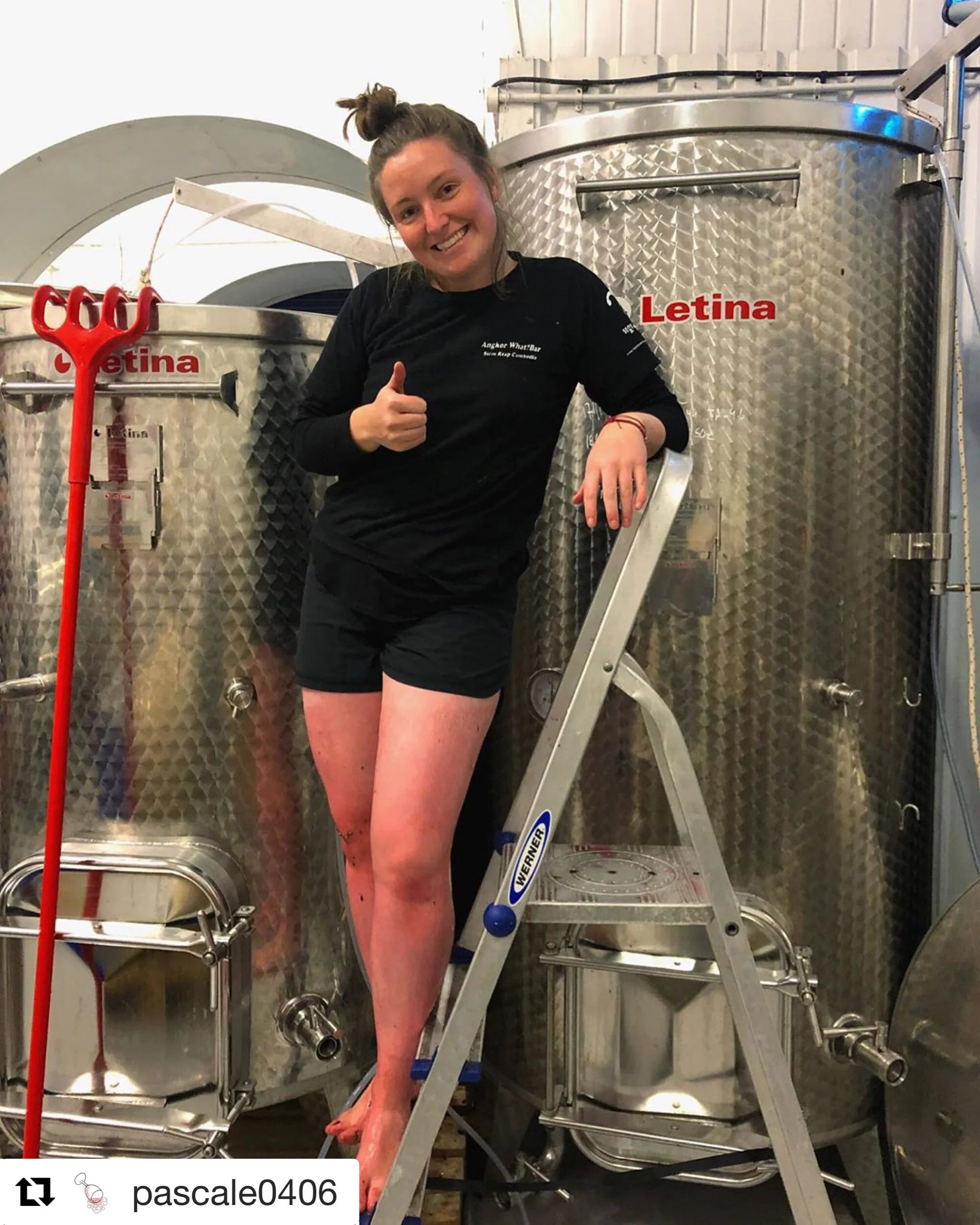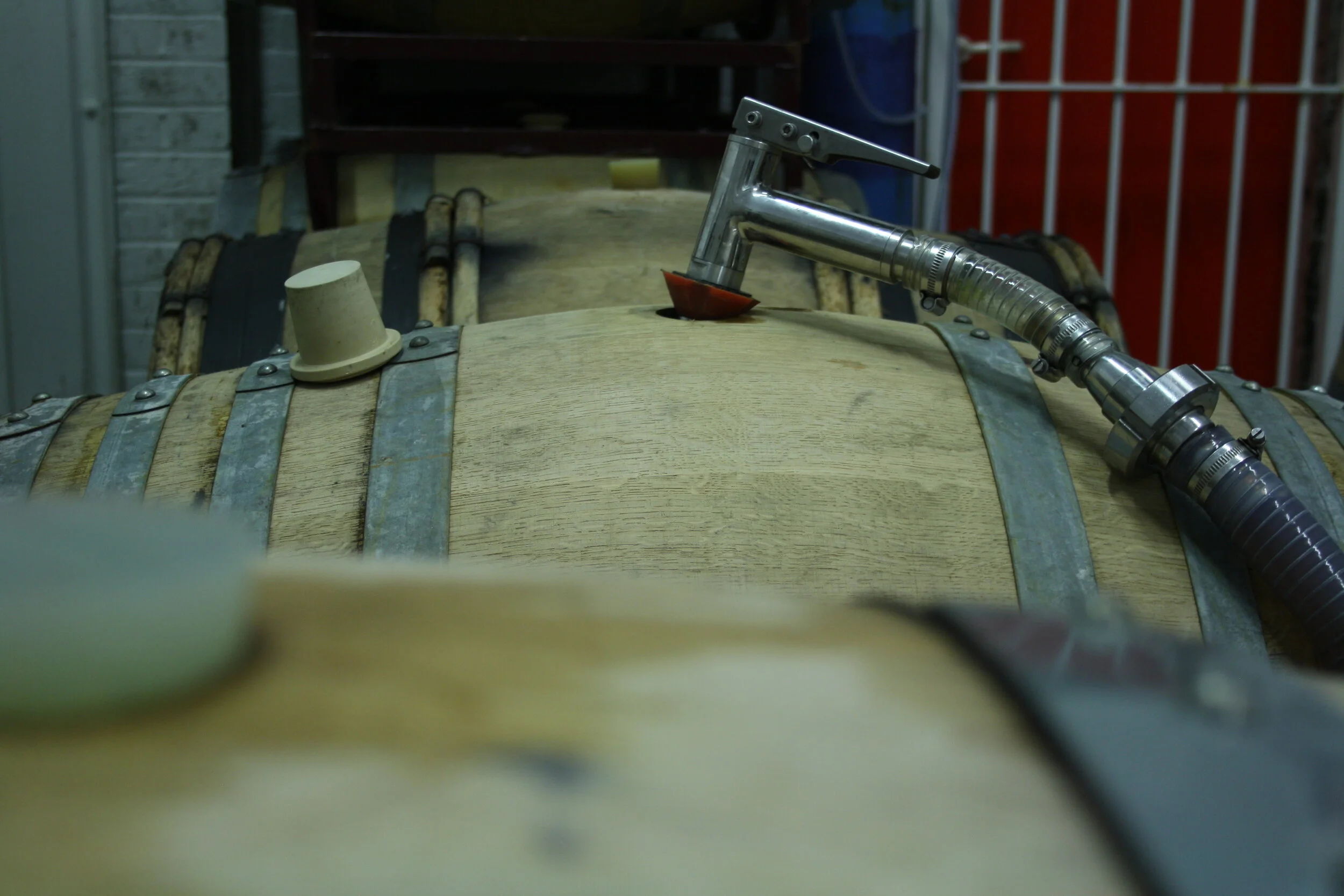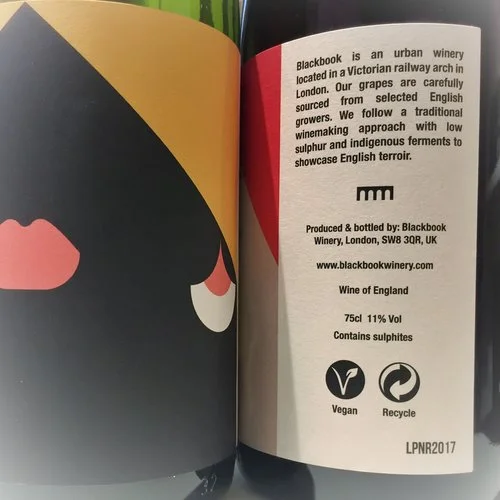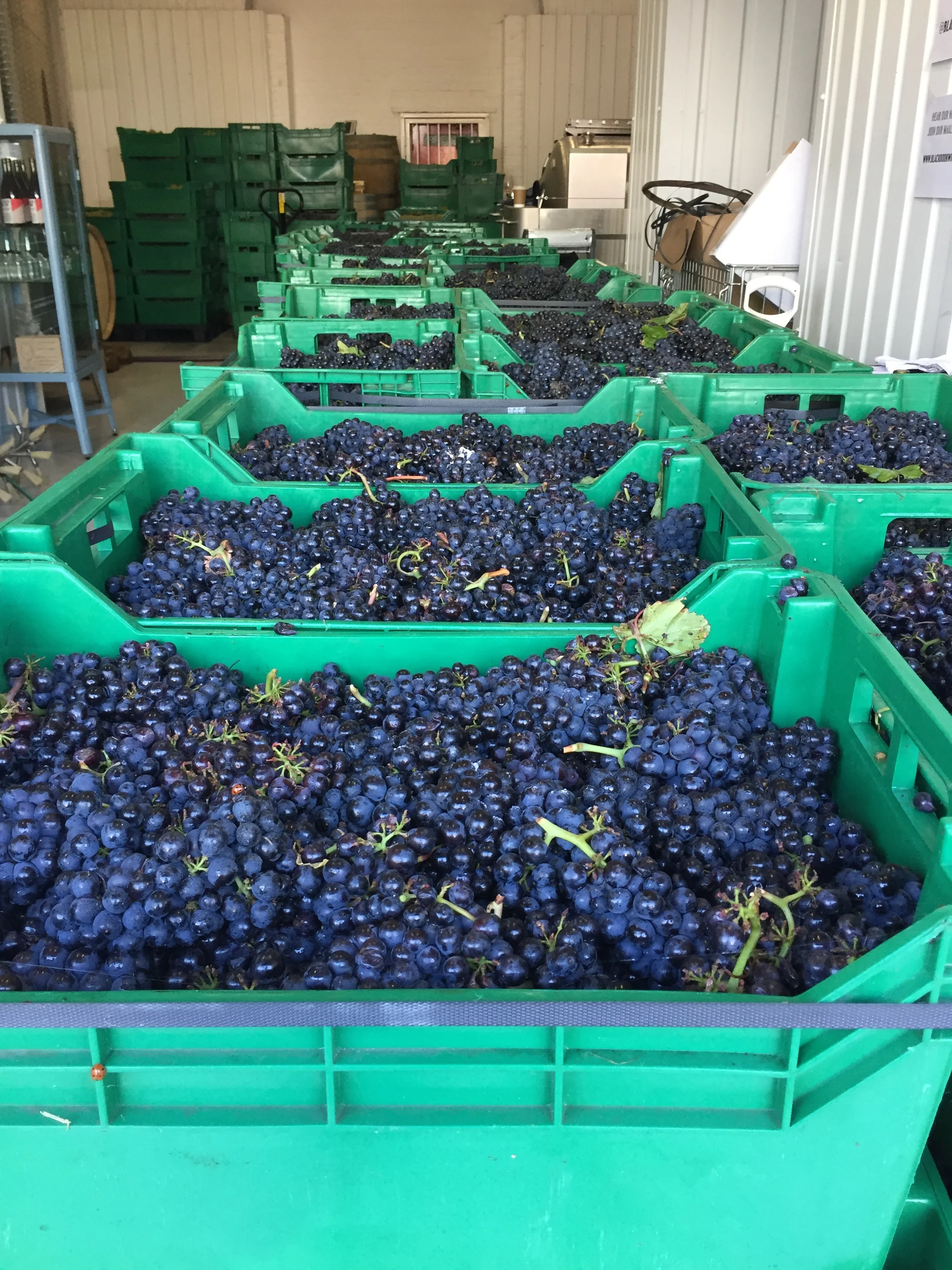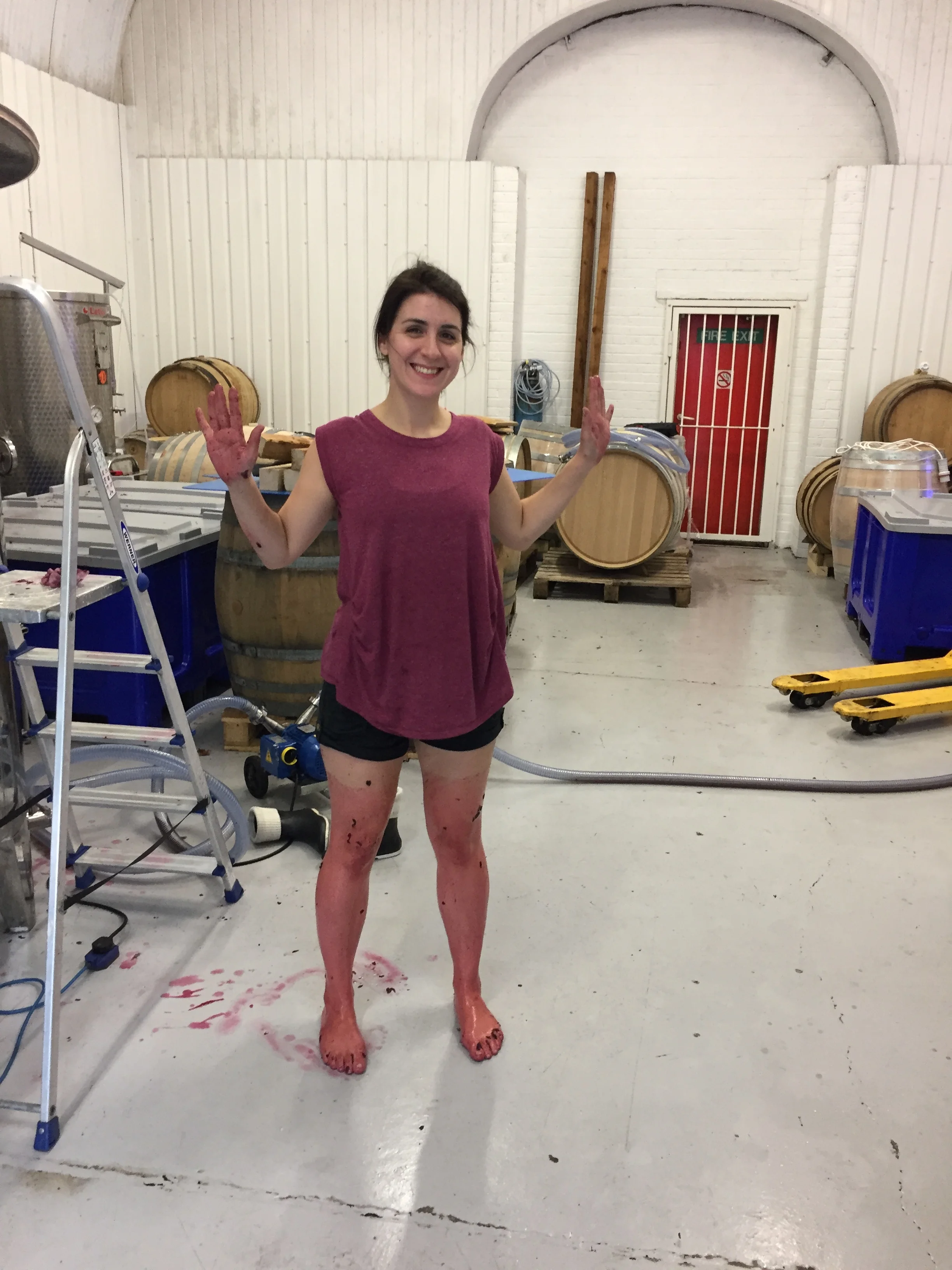Vinous.com reVIEWS
Blackbook winery scores highest rated still white wine in England in Vinous report for 2022 Painter of Light Reserve Chardonnay, January 2026
2026 is off to a great start - not just for us but for the wider English wine scene. Anne Khrebiehl MW released her U.K report for Vinous (Antonio Galloni) this week, under the title ‘English Sparkling still forging ahead’. We were delighted to be included in her lengthy list of wines that were tasted, recorded and scored.
“Over in the still wine camp, England’s performance is equally impressive, especially when it comes to Chardonnay.” AK, Jan 2026.
We are especially proud that that our 2020 Painter of Light Reserve Chardonnay scored 94 points - the *highest achieving English still wine of the entire report* (not yet released)
Our 2022 Pygmalion Chardonnay scored 93 points (you can now pre-order)
Our 2023 Painter of Light Chardonnay scored 92 points (coming soon)
Our 2019 Pinot Noir Nightjar Reserve scored 93 points, the 2020 Pinot Noir Nightjar Reserve scored 92
Our 2023 Pinot Noir Nightjar (new release) scored 92 points
The 2021 Sea of Love Pinot Blanc achieved 92 points (coming soon)
Our 2022 I’d Rather be a Rebel Rose achieved 91 points (coming soon)
Sergio has always believed that the future of the U.K is in still wine, and we are chuffed these wines are now telling that story (in some excellent company) for the world to see.
“It’s a strong reflection of the hard work that goes into making our wines, from making sure we work with the right growers to the attention to detail we are sticklers for in the winery. This report is a great boost for the category and an empowering and encouraging signal of the quality now being achieved across English still wines.”
To read the full report and reviews for each of the wines above and the rest of our range that was tasted, visit the Vinous website here.
Thank you Anne for your continued support of English wine!
🍷
"Another starry Pinot"
We're delighted to be featured in The Times on the 6th December where long-standing critic Jane MacQuitty recommends our 2022 Nightjar Pinot Noir, in her best place's to buy your Christmas Wines. We're starry-eyed to read her glittering review. Thank you Jane 🍷
We're delighted to be featured in The Times on the 20th December where long-standing critic Jane MacQuitty recommends our 2022 Nightjar Pinot Noir, in her best place's to buy your Christmas Wines. We're starry-eyed to read her glittering review. Thank you Jane 🍷
"The dry, sunny, relatively frost-free Crouch Valley in Essex is our top spot for pinot noir. And Sergio Verrillo's Black Book urban winery has made another starry pinot noir, hand harvested and aged in burgundy barrels, it's a big, bold, savoury, meaty, tobacco leaf gem."
Wine Enthusiast on The Brits Drinking their oWN WINE
Wine Enthusiast English drinking their own wine urban winery blackbook mention
Wine Enthusiast’s Christina Pickard recently wrote a piece called “Against All Odds, the English Are Finally Drinking Their Own Wine”
With a lovely mention of us here at Blackbook…
She comments, on a return visit here in 2022, on how she found an “entirely different and thoroughly more grown-up wine scene” that she left behind ten years prior to go and live in Australia.
In the trend report she gives the Urban winery movement a nod, mentioning Blackbook
“Urban wineries have also cropped up around Britain, like Blackbook, with its array of modern and colorful yet complex still wines made beneath the railway arches in London’s Battersea neighborhood.”
To read the full piece click here
Cheers Christina for the inclusion!
Wine GB’s Top 50 WINES 2025
Blackbook’s Nightjar 2022 selected as Wine GB’s Top 50 wines 2025. With over 105 gold medals awarded in 2025, the final selection shows the high quality and breadth of the nation’s wines with 34 sparkling wines and 16 still wines made by vineyards located throughout the UK
Wine GB has awarded its top 50 wines for 2025.
With over 105 gold medals awarded, the final selection shows the high quality and breadth of the nation’s wines with 34 sparkling wines and 16 still wines made by vineyards located throughout the UK.
We’re delighted to share that our NightJar 2022 was included in the line up of the still wines.
Essex born and Battersea bred, hailing from Clayhill Vineyard, situated on the coastal peninsula of Crouch Valley and positioned between the rivers Crouch & Blackwater, the vineyard is a beautiful south facing site with clay soils. The 2022 vintage has given us a generosity of pinot noir reflecting the warm dry summer of the year. The wine is wonderfully structured, showing beautiful ripe red fruits and black pepper spices. Fermented naturally in small open top fermenters and aged in Burgundy oak barrels.Unfined and unfiltered. May contain sediment.
Optimal Drinking window: 2025-2033
Total production size: 270 cases
Bottle weight: 400g
The best news? We’ve still got some magnums left - perfect for Christmas!
Salud!
Featured in The Times
Inside London’s new urban wineries — and here’s where to find them - Blackbook in The Times
Inside London’s new urban wineries — and here’s where to find them
We’re in The Times - read more on this latest piece on London’s Urban Wineries.
Here’s a little excerpt… focusing on what matters to us here at Blackbook.
"Volunteering is important because it helps get the community engaged," Verrillo says. "How often do people get the opportunity to walk straight off the Tube and find themselves making wine?" About 600 people have signed up to volunteer with Blackbook. Some come all the way from Scotland - but the majority are Londoners.
To read the full article, click here…
Blackbook Harvest Report 2025: one of the most exciting in Blackbook’s history
Blackbook’s 2025 harvest marks a milestone: exceptional quality, abundant yields, and pristine, balanced fruit. Warm, dry conditions delivered early, healthy growth and beautifully ripe Chardonnay, Pinot Noir, Pinot Gris and more—setting a new benchmark for future wines. An unforgettable vintage.
The 2025 harvest stands as one of the most exciting and exceptional vintages in Blackbook’s history - a rare convergence of abundance, concentration, and pristine fruit quality. It sets a new benchmark for our wines and paves the way for the future of Blackbook.
The English growing season started with a bang. A warm, dry spring laid the foundation for what was to come. Ideal early-season conditions led to an earlier-than-usual budburst, pushing the growing season forward. This was followed by a dry, warm summer that further strengthened vine development, with flowering occurring earlier than average. The generous sunshine and lower-than-normal rainfall created remarkably low disease pressure — a welcome contrast to the challenges seen in 2024.
The favourable weather continued into the ripening period. While many vineyards across the UK began picking in what became one of the earliest harvests on record, our fruit took a slightly longer path to perfection. As some producers were wrapping up, our first grapes arrived on the 6th of October, marking the beginning of a steady stream of beautifully ripened fruit. Clean, vibrant, and exquisitely balanced, the fruit exceeded expectations, with yields coming in 20–30% above forecast.
This year we brought in Chardonnay, Pinot Noir, Pinot Gris, and a handful of other exciting varieties that have already shown tremendous promise in the winery.
We are immensely excited to watch these wines evolve over the next 6–12 months and beyond. Blackbook’s 2025 wines will be ones for the ages — a true milestone in our journey.
Blackbook Reserve Wines
Our goal from the beginning of the journey at Blackbook, was to show that you can make stellar pinot noir and chardonnay in England, and this week marks another milestone in that journey as we release the first of our reserve wines. We’ve been working with the Symons Family at Clayhill Vineyard since our first release in 2017. Dale has a stunning site in the Crouch Valley and he shares our determination to make high quality still pinot noir and chardonnay in England, and we use his burgundian grape clones to make our flaghship Painter of Light chardonnay and Nightjar pinot noir. After a great reception to our 2017 release, we decided to take a leap and save a barrel of each wine for extra ageing in order to create a ‘reserve’ version of our core cuvees. In 2018 it was England’s ‘big’ harvest, and this was when we started to hold back wine. We have had a barrel of the 2018 Painter of Light and 2018 Nightjar in the winery for 2 full years, then another year aged in bottle. These wines have had 3 years of ageing, compared to our normal 1, and that extra time demonstrates the great potential for making world class still wine in England. We have less than 300 bottles of each of these wines. The labels are once again designed by our talented friends, the Yarza Twins, who have created the grown up version of their core wine counterparts.
The 2018 Painter of Light chardonnay reserve and 2018 Nightjar pinot noir reserve are online now.
Harvest Report 2020
As we prepare for our new releases, we have shared some thoughts and memories from the 2020 “COVID” harvest. What a year, what a memory, it was a race to get wine in bottle before the numbers skyrocketed to the level that the whole country shut down. Hopefully we never have to do harvest under these conditions again - due to the rising positive case numbers in London in October, we approached harvest with caution, sad to lose the normal contingent of volunteers who come from all over to get their hands dirty and stuck into grape shovelling and squishing. Thankfully we did have a superb core team in the winery, in 2020 we had our first non-Verrillo full-time harvest team member, the lovely Alice Verburg who left her family vineyard, Luddite Wines in South Africa to be with us through the Blackbook harvest. Special mention also to Jac Smith and Sara Wright who became the extended part of our core team and joined Sergio and Alice for many late nights in the winery.
As far as the vintage is concerned, 2020 kicked off with a bang! We welcomed a new and exciting Essex grower to our repertoire, who provided us with some of the best pinot noir seen all harvest. That mainly went into our 2020 “I’d rather be a rebel” rose, however, there was a single pinot noir clone that tasted incredibly good that it was syphoned off into a new limited edition red wine, “Trouble Every Day”. This set the tone for the rest of the harvest. Working with some of our existing growers, we have worked with two new grape varieties for Blackbook - sauvignon blanc which we fermented on skins and are releasing as “Slow Disco”, and pinot blanc which is “Sea of Love”.
The season started with an earlier than normal bud burst in the spring but was met with the mid-May frost that the UK is often plagued with. Fortunately enough, all of our growers were spared giving way to flowering and fruit set which took place in good conditions and a warmer than average August bringing on ripening on quickly, setting the scene for a great harvest.
The harvest was one of the earliest of modern times with reduced yields, but exceptionally high natural sugar levels, and flavour development. As a still wine producer, we are always one of the last to pick with our harvest starting the second week of October running for 3 weeks. It was met with sporadic rain and sunshine, a very different environment to 2019 and the wines reflect this. In summary, 2020 has produced some great wines but not many of them.
How do you drink during lockdown?
It’s week 13 of the UK lockdown and we can’t decide if it’s raced by or the quintessential never ending groundhog day. We posted in March about the uncertainty ahead, the shift we were planning to make to shift our business to survive and get through. Three months on, we are happy to report that we have grown our direct to consumer base (79% of all wine sold in April and May is Direct to consumer, the inverse of our normal business), and really happy that a lot of people have discovered us as UK wine drinkers looked to 1. support small businesses and 2. buy local. Sadly however, our trade sales have dropped off massively, and we see our customers through Hallgarten, and direct trade relationships we have, suffering significantly. We’ve been happy to see some of our retailers doing well and hope the restaurants can see a positive bounceback beginning in July.
How are customers buying and drinking during lockdown?
Whilst we’ve all been cooped up at home, the way people are buying and sharing wine has been a real joy to see - and glad we’ve been able to help people stay connected during lockdown. Here are a few of our favourite trends:
Thinking of others and gifting to your friends & loved ones
25% of all orders so far in lockdown were gifts ordered to be sent to friends and loved ones, compared to 7% of our orders prior. Are we getting more generous? Not only were orders being sent across the UK but we had quite a few orders from around the world, sending to UK based friends. Building on this, we’ve also had some new corporate clients who are sending boxed Blackbook wine to their colleagues to say thanks for all the hard work during lockdown.
Drinkalong wine
We launched a ‘lock in case’ deal which is a sample pack of all 6 of our current wines available. This has been by far our most popular order during lockdown. What we’ve loved seeing across instagram and twitter since, is that these are being bought by groups of people to drink virtually together. We’ve had a family across three households sharing a bottle each week, we’ve had groups of friends trying a few together. Happy that we have helped bring a different dimension to the catch ups.
Tutored tastings
Similar to above, groups are order en masse, but in some cases we’ve been invited to join them and talk through the wines and run a tutored tasting. This has been a fun way to bring the wines to new groups and great that we can do this from our living room, reaching people across the country. We’ve also run a couple of drinkalong tastings on instalive during many of the English Wine Good Fridays, it’s such a thrill when we are hearing your thoughts and comments on our wines live with us. We’ll be doing more for English Wine Week, do join us again, or get in touch if you want to book a private event with us.
Word of mouth
Recommend to a friend - at least 12% of our orders (not everyone tells us where they heard about us!) are from customers who have been recommended to try our wine via a friend. THANK YOU for sharing the love for our wines, it means a lot to us. We were a little surprised to see which of our wines were most popular, outside of our lock in case, 41% of all wine orders were across our 2 red wines, and who said people didn’t want to drink an English red!
Our own drinkalong with friends
Breakdown of individual consumer bottle sales by wine, during lockdown (Mar-Jun 2020)
English Wine Week 2020
It’s English Wine Week starting next week, and for the rest of lockdown and through EWW, we are continuing our lockdown offers - the lock in case, free shipping for 3+ bottles and free local shipping around the winery. We’re also launching a few new case offers and gift packs, so watch this space for more coming soon. We’ll be running a few special, virtual events for our followers during English Wine Week:
15 minute tastings: On instagram live at 8pm each night from Saturday 20th June through to Thursday 25th June we’ll taste one of our wines and talk you through it. The full schedule to be published on our instagram page, be ready to drink along with us.
The “Not another virtual quiz” English Wine Quiz: Friday 26th June at 8pm, we’ll host an hour long instagram live pub quiz on English Wine, bring a friend, play together and drink along with us.
Private virtual winery tour & tasting: Saturday 27th June at 8pm, join us to round off the week with a special and interactive virtual wine tasting and tour of our winery. This will be available for customers who buy our gift packs or case orders, inclusive or as an add on, as well as our wine club members.
Lock in diaries
Since our last post a couple of weeks back, the world we live in is unrecognisable. You all know that. We remain in awe of the brave people on the frontline, from medics to couriers to supermarket workers. We’re putting some plans together to show our support for them, more on that in a couple of weeks.
If you’re interested in the experience for a boutique English winery like us, we’re today sharing our observations. In some respects we’re very lucky - we don’t have any employees, so there are no salaries / furlough concerns to deal with. However this has hit us, majority of our bottles sold are to the trade. In Spring last year we gained significant momentum. We were thrilled to host wine critics and consumers at the winery, priviliged to be invited to run tastings, meeting a tonne of people to get the word out there about our small business. This spring, those chances to interact are gone - our winery tours are cancelled for the foreseeable and we can’t even see a friend, let alone a prospective customer, and our main sales channel is shut down. How this affects us will depend on how long that all lasts, and we’re working hard to try and adapt our business to survive in this environment. We’ve seen a brilliant amount of support in the past couple of weeks from consumers, which we’ve really appreciated.
The winemaking challenge: If you have visited us, or volunteered, you’ll know already how manual we are at Blackbook. We rely on the support of volunteers to help us at three key stages in the year - harvest, spring bottling and autumn bottling. We are really hopeful social distancing has been largely lifted by harvest or relaxed enough to enable us to welcome volunteers in to help us. Spring bottling however will certainly fall within this period. Thankfully we are well so Sergio can continue to work in the winery, adhering to all safety advice. Yet he may end up doing bottling alone…after a long day of looking after the kids?! The other risk is access to supplies and thankfully we ordered in bottles and corks some months ago so we’re ok for now, but will think about the impact for autumn bottling.
The small business challenge: This has been the fascinating piece to witness, we do not meet criteria for much of the government criteria as we are a supplier to the restaurant / retail bus and not directly there - we’re exploring and seeing how we can get help. We have been thrilled to see many of the companies we use to run our business, like Squarespace, iZettle, the FSB offering support and offers to help us pivot and get through. We’ve also loved the support of the wine community to highlight and promote small businesses that are open and selling, and we’ve been delighted to feature on lists from Jancis Robinson, and Abbie Moulton.
One great initiative next week is the Big English Wine Good Friday - rallied by a range of English Wine Producers and communicators. Check out the #bigenglishwinegoodfriday on instagram and twitter. We are doing a few new offers -
Lock in case - One of each of our 6 wines for £105
BIGENGLISH - Use “BIGENGLISH” discount code to receive 10% of any 12 bottle case order AND a spot on our first Virtual Winery Tour & Tasting on 18th April.
Shipping offers - We are doing 100% free local shipping in postcodes SW4 SW9 SW8 & SW11 and free shipping to mainland UK on 3+ bottle orders.
Gift cards - You can support us by now buying gift cards in our shop to give to a friend, these can be redeemed against anything bought in our online shop
Look forward to raising a glass together on Good Friday at 7pm, we’ll be live on instagram
Lynsey & Sergio xx
At least we have good wine…
In these unusual times
Everyone now understands the impacts and the effect of this current pandemic. We don’t need to restate the way it has affected us, you get it, and we are trying to keep positive and grateful for a situation that could be worse for us personally (like the Southern Hemisphere dealing with this throughout harvest, or businesses reliant on footfall and social interaction).
We are a small business, yet as a largely B2B manufacturer, we don’t know exactly how it will hit us as we don’t have a steady day to day income stream, so hard to predict. Many of our customers are feeling the immediate impact, particularly the bars and restaurants. Our thoughts & hopes are with them to weather this storm and come back blazing once we can relax the social distancing. Some of these are repurposing, like Bistro Union who will become a store selling fresh pasta and other things, and many moving to take away/delivery only, like Dvine Cellars.
We will post about any of these businesses on our instagram and hope that you can continue to support them as they switch to a model that works in this context. We hope that you can choose to shop local right now and help small business owners survive.
We will lose sales to the on trade over the next few months, and we hope that we can fill this gap with more sales direct to consumer, and be an option for Brits that are skipping the night out but still want to enjoy a nice bottle of wine at home. We will be taking great care with the handling of the wine, carefully cleaning and packaging wines to be sent. During this time, and until further notice, we offer some additional services to our customers:
FREE LOCAL DELIVERY: If you live local to the winery (SW8, SW4, SW9 & SW11) then we will offer FREE DELIVERY of orders of 3+ bottles
SATURDAY CELLAR DOOR: We will have open doors on Saturday 1-5PM this weekend so you can visit the winery and stock up direct
DOOR DROP SERVICES: If you order a delivery from us, whether local or UK wide, and if you require a drop off outside your home due to quarantine, we are happy to take specific instructions and ensure that your wine can arrive safely. Use the ‘Delivery Preferences’ section of our checkout
EXTENDED GIFT VOUCHER EXPIRATION: We are adding 6 months as standard to all current gift voucher expirations and each new voucher purchased will be valid for 18 months, until otherwise advised
We also continue to sell gift vouchers for winery tours, so please do consider these as great digital gifts that can be redeemed well into 2021.
Thanks for reading, stay strong, love to all and let’s keep the small businesses alive through this crazy.
Lynsey & Sergio xx
Easier times back at the Brixton Wine Car Boot, Nov 2019
Harvest report 2019
Harvest 2019 in numbers
19 tonnes of grapes
12.5K litres
5 varieties
5 growers
24 volunteers
8 days of picking
85 beers consumed (probably!)
After the bumper 2018 harvest in England with stories of tanks at capacity resulting in grapes being left out for the birds, the expectations for 2019 were generally low. The chances of two super vintages for England were slim. 2019 indeed faced a number of challenges - September average rainfall in South England of 142% vs a typical year - and double last year (91mm vs 45mm, Met Office), and cooler temperatures created conditions which impacted the crucial grape ripening periods. October offered no respite with rainfall in the South of England 175% vs average and sunshine at 83%. This resulted in grapes hanging longer, lower yields due to some loss associated with this and more challenging sugar/acid levels. England is still such a young industry, we’re learning how to prepare for our unpredictable weather and each year quality will continue to improve. We saw our experienced growers really mitigating the tough conditions and producing great fruit at a yield they were happy with. The end result for us in 2019 was a later harvest than usual, with processing starting proper on 16th October, and wrapping up on 25th October. Short and sweet. The timing was also later as we did not work with early ripening varieties, such as bacchus, in 2019.
This year, we worked with 5 vineyards: revisiting four from our 2017/18 vintages - Clayhill Vineyard in Essex, Crouch Valley Vineyard also in Essex, Yew Tree Vineyard in Oxfordshire, and Shotley in Suffolk who we started working with last year but at small scale. We continue to explore East Anglian growers due to their more favourable weather conditions, and we were happy to see the overall progress across our 4 East Anglian growers in 2019. We also added a new grower for 2019 - Combe Bottom, in Sussex.
We received 19 tonnes of grapes this year, a little down on our 2018 which wasn’t too surprising considering the yield variances. We scaled back the varieties we are working with, to concentrate on our core pinot noir (3 sites) and chardonnay (3 sites), plus seyval blanc for our 2019 GMF and this year we are introducing pinot meunier and pinot gris. We haven’t quite finalised what happens for our 2019 wines, however we are expecting both our core range (Painter of Light, Nightjar and I’d rather be a rebel) plus GMF, and on top of this expect to see a still blanc de noir and a new white blend.
We are following a similar approach to winemaking in 2019 - whole cluster fermentation, daily pigeage, barrel fermentation and gentle oak integration. We will continue with plenty of lees stirring and malolactic fermentation to coax out texture in our wines. The higher acids may result in us ageing in barrel a little longer for certain wines, and we may do an additional sparkling wine. The fun part lies ahead as we see how these wines develop and evolve. The winery currently smells amazing with fermentation going at great guns and in spite of the challenges we’re excited about the prospects of the 2019 vintage.
We were really pleased to be able to welcome more volunteers than ever before to the winery for this harvest - we received offers of help from many people and managed to get 24 volunteers into the winery over a number of sessions, who came to help shovel, scrub, squish and clean. We couldn’t do it without this amazing group of people who come from and amazing array of backgrounds - we get a lot of WSET students but also enthusiasts who have nothing to do with wine day to day, including geologists, architects and tech entrepreneurs.
Finally, next week we host our first annual wine club members event, where we are welcoming members of the Black Book to the winery where we’ll talk them through harvest and offer barrel and tank samples next to our 2018s and possible some 2017s out of the archive. We look forward to starting to share 2019s at the early stages as well as finished next year.
Now we’re off to catch up on some sleep! (we wish!)
~Sergio & Lynsey
The English micro-negoc project
In our beloved wine country, the old and new alike venture in search of the perfect vineyard across the Southern line. However as suitable land is becoming scarcer and land prices continue to climb, is planting the future for the UK wine industry? Well, perhaps not.
Sergio’s article below recently published in Vineyard Magazine, June 2019 edition https://www.vineyardmagazine.co.uk/onlineissue/
Buying in grapes means not being tied down to a specific site.
In our beloved wine country, the old and new alike venture in search of the perfect vineyard across the Southern line. However as suitable land is becoming scarcer and land prices continue to climb, is planting the future for the UK wine industry? Well, perhaps not. Wines of Great Britain reports in 2019 a 24% increase in the overall land now under vine, with an estimated 3 million vines going in the ground this year alone. This brings the total hectarage up from 2,888 to just over 3,500 hectares. In 2018’s bumper harvest, capacity issues were seen where there was no remaining tank space for vintage demands. While this anomaly maybe due to the perfect storm of 2018, it could become more of a common occurrence in future years, due to climate change and more established vineyards coming online. As the market for grapes continues to mature, and grow, it is logical that more producers may opt, as we have at Blackbook, to bypass the decision to plant and instead focus on developing relationships with trusted growers to source our fruit. For decades, even centuries, wineries around the world have adapted to changing conditions through the ability to purchase fruit from different sites, some locally and others further afi eld to make their wine. Those whose production is from 100% purchased fruit can be described as a négociant – a winery who buys grapes, or grape juice, from others and sells the wine under their own name. In recent years many have preferred to use this model; often the younger generations marked as New Wavers. No better example can be seen than in South Africa, where a group of likeminded individuals are seeking forgotten vineyards and varieties lost in the fog of Chenin blanc, Pinotage and Chardonnay. Take for example, Blankbottle, Craven Wines and Savage Wines. Beyond the romance of the New Wavers, a good example is Burgundy as an epi-centre for micro-negoc due to the prohibitive cost of land - vineyards can cost upwards of millions for a sliver of a 1er cru or Grand Cru plot; Le Grappin is a key example known well to the UK market. While both arable land and established vineyards in the UK are nowhere near the infl ated prices of Burgundy and its neighbours, a commercial planting could set you back between £15-25K per acre for land and planting. But it is not just the establishment. There is the yearly running cost of anywhere between £5-10K per acre, plus the 3-4 year waiting time. The initial outlay and waiting, ultimately ends up with at least a 10-year timeline to see any return. Dreams of transplanting the south of France to the sunny hills of the English countryside could end in tears. For us, grape purchasing may be the answer. As well as offering a more accessible route to starting a label, grape purchasing enables the producer to source a diverse selection of varieties, adjust the mix over time according to desire and demand, and shift the production size up and down. As a producer, grape-buying means not being tied down to a specifi c site. I am able to source fruit from Sussex, Kent, Essex and beyond, highlighting the immensely diverse micro climates within each of those sites. In some cases, fi nding lost plots and working to revitalise them. As a micro-negoc, there is no need to wait four years (for still wine, sparkling is an eternity of a wait!) before seeing a return on one’s investment. Conceptually, wine is being sold earlier therefore income is received earlier. The earlier returns lead to a reduced time towards profi tability making the whole project more viable for a start-up. There is a third scenario here. The option to lease vineyards. I believe this could be a good alternative for the control freaks out there (I include myself in this grouping). The capital outlay is much lower than planting, but the direction of the vineyard is under direction by Leasee who rents the site, as is the cost of maintaining the site. This is a good alternative, but I feel the same can be achieved with the right grower relationship. As the UK rises through the ranks of growth, would more businesses want to be a négociant? At the moment, in the current state of affairs, I would say yes. As years continue, vines are coming of age, more fruit is hitting the open market and by extension more wine. My question is where will it all go?
The first London grown, London made wine
As many people are aware, harvest 2018 was the biggest seen to date in England and Wales. The hot and dry summer resulted in greater yields than we’d seen and more fruit than many wineries had space to accommodate. We felt really fortunate that when Forty Hall Vineyard, in North London, had been advised that there was not enough tank space to accommodate all of their fruit, they knocked on our door.
Grapes from Forty Hall soon after they arrived at the winery, Sept 2018
We’ve been long admirers of Forty Hall - a vineyard in London, socially-minded, not-for-profit and organically certified to boot! Being certified organic, Forty Hall avoids the use of synthetic fungicides, herbicides or fertilisers to encourage sustainability, biodiversity and natural balance. In 2018 there were 65 registered volunteers and 6400 volunteer hours logged. They produced nearly 20 tonnes of grapes in 2018 and we were lucky enough to secure just over 1 tonne of their bacchus. Forty Hall’s own award winning wines are vinified in Sussex, so when they offered to sell us grapes we were excited to consider that it would be the first end to end London wine.
The bacchus was picked and sent down to us at the end of September 2018. When the grapes arrived they were beautiful, and great ripeness. They went straight into the press and we split the juice between older French oak barrels and steel tank, where they fermented using natural yeasts. This was followed by naturally occurring malolactic fermentation and aged for 6 months on gross lees. We do not fine or filter, the wine was bottled in April 2019 and has just officially launched.
Lisa and Emma from Forty Hall, with Sergio and Matt Frame
We named the wine, Tamesis. Named after the Latin word for the River Thames, which is a stone’s throw from the winery, the label for Tamesis was designed by local London artist, Matthew R. Frame, who took inspiration from the river, and the Roman origins of wine in England. The label references 3 key symbols: the component parts of the Thyrsus, a staff wielded by Roman God of wine, comprised of a fennel plant tipped with a pine cone, wound in vine leaves and ivy and dripping with honey; the Battersea Shield, discovered in 1857 during excavations for the Chelsea Bridge and is believed to date back to 1st century BC; and the bee wing that is the main focus of the label is both a reference to the honey laden Thyrsus and the army of volunteers at Forty Hall.
A wine that truly expresses the varietal essence with nuances of elderflower, white peach, and white pepper with touches of sweet spices and tropical fruit.
At Blackbook we are proud of our London heritage and passionate about the city. We strive to demonstrate that world class wine can be produced in an urban winery and believe that Tamesis is a perfect example of that.
Available now in our online shop.
Vegan or not Vegan, That is the question!
What makes wine vegan, and why do we make vegan wines.
All Blackbook Winery wines are vegan, and labelled as such
Why do we choose to make vegan wines? Good question! As “Veganuary” draws to a close, we thought we’d use this as a chance to share some detail around our approach to winemaking, explaining why our wines are vegan and the choices winemakers make that affect whether a wine is vegan or not.
Most wines are not vegan friendly due to the use of varied additives manufactured from animal products, including things such as egg whites, fish bones, and gelatine that are all commonly used. These additives are used in wineries to allow accelerated processes to ready a finished wine, thus providing time and cost savings. However, a high quality, finished and consistent wine can be achieved through fastidious attention to detail, more labour intensive processes and vegan raw materials.
From the very beginning, we have endeavoured to follow a sustainable and minimalistic philosophy aimed at creating the best varietal expression of the source fruit in our wine. To achieve this, we take a minimal intervention approach in the winery, respecting the fruit and the terroir. That approach allows us to generally avoid a number of interventions that can turn fermented grape juice into a non-vegan product.
Now, let’s talk shop! Here is a walk through of the key process where the non-vegan additives are commonly used:
Clarification and filtration
Winemakers may opt to clarify in order to get a crystal clear finish on wines. There is a two step process in order to create this. The key one is filtration, where wine is passed through a series of filters or diatomaceous earth (ground rock sediment) to capture the very small particles and residue that can cloud a wine.
In order to aid filtration, a further process is one that may be employed, called fining. Fining is the addition of a range of agents prior to filtering, as means to bind together the various elements through a positive/negative attraction, kind of like a magnetic attraction, that cause haze - proteins, tartrates, tannins and phenolics. By binding, they clump and can be readily removed through filtration. Many fining agents are non-vegan, for example gelatine (animal fat), casein (milk based) isinglass (fish bladders) and egg white / egg albumin. There are also things such as bentonite (clay) used to fine as an alternative to the other products. In 2017, we chose to only filter one wine, our rosé, and we did that without fining the wine. We filtered to ensure a crystal clear finish of the wine. For our subsequent releases we favoured a carefully monitored racking or soutirage (the process of siphoning wine from one container to another to remove sediment) using gravity where possible, to achieve a clear finish without an unnecessary intervention. This has resulted in uncompromised flavours which we think you would agree is helping us produce the best product that we can.
So, there we are! A little bit wiser and little more entertained (hopefully!)
The filtration process in action for our 2017 rosé
Harvest report 2018
Harvest 2018 in numbers
20 tonnes of grapes
12,600 litres
5 varieties
7 growers
13 volunteers
12 days of picking
700 miles Sergio drove in a rental van
116 beers consumed (probably!)
There is one consistent word that will come to mind when Brits are asked about the summer of 2018, HOT. Or perhaps three, HOT, HOT, HOT! Which meant one thing for the English wine industry, bumper crops! Compared to the frost-riddled 2017 growing season, we had the opposite experience of a surplus of grapes as harvest approached. England sits above the traditionally prime latitude of 30-50 degrees so growing grapes in this climate can be considered a gamble. In 2018 the growers were certainly the winners with higher yields than ever before, coupled with increased planting over recent years without a doubt 2018 will be the best and largest English wine production to date. Look out!
We are pleased to report that Blackbook is part of that growth. In 2017 we processed over 6 tonnes of grapes, producing over 5,000 bottles. This year, we received over 20 tonnes of English grapes which we estimate will result in approaching 17,000 bottles. The season was long due to the increased sunshine. England saw early ripening varieties like Ortega picked in late August in some cases and it was the 2nd half of October when we spotted the final picking posts on instagram, of varieties like pinot noir and chardonnay which benefit from longer hanging to increase phenolic ripeness. Blackbook received our first grapes on the 4th of September - Ortega from Redhill Farm Estates in Kent, and our last grapes on the 9th of October - chardonnay from Greyfriars Vineyard in Surrey.
We have received grapes from 7 growers in 2018 - a big jump from the two we worked with in 2017. We continued our pinot noir and chardonnay focus with Clayhill Vineyard who supplied the grapes in our three currently available still wines, and added the next door vineyard to Clayhill as well as nearby Shotley vineyard in Suffolk for pinot. We also worked with old friends, Greyfriars Vineyard, in Surrey where Sergio worked during his studies at Plumpton. Our Greyfriars chardonnay fruit will be vinified into a blancs de blancs sparkling for release in a few years time. We are working once again with our third variety, seyval blanc, from Yew Tree Vineyard in Oxfordshire. Finally we have extended our range to Ortega and, Britain’s favourite, Bacchus as well as an unusual red variety, cabernet noir which is a thicker skinned yet full bodied and high potential English red. Redhill Farm Estates supplied us with these three varieties and we also received Bacchus from one more grower that we are keeping under wraps for now, all to be revealed in due course!
We had a tremendous sign up to our volunteer list this year and welcomed a wide range of people down to the winery to lend a hand during harvest peaks. We had bankers, restauranteurs, construction folks and more joined us to load the press, do punch downs, clean tanks, move barrels and many more fun harvest activities. We celebrated with a great party at the end of the season and are so grateful for those extra pairs of hands during a crazy period.
We are learning every year, both in our vinification process and logistical management of the growing business with a full time staff of 1! One day Sergio drove around 700 miles across the south of England, AND processed fruit.
Our 2018 wines are yet to be finalised, ageing and blending is to come, but we’re excited to revisit the four wines we produced in 2018: sparkling seyval, still rosé, pinot noir and chardonnay as well as expanding our range to include a sparkling blanc de blancs, a still Bacchus, a still cabernet noir and a still white blend. Watch this space!!!
Harvest party at the winery
Clayhill pinot noir
Ready to launch
It's been a busy 12 months for Blackbook as we've set up our Battersea premises, sourced our first English grapes, completed a hectic harvest and now bottled and labelled our first release. We're ready to launch to the market, starting with our Essex-grown, London vinified pinot noir rosé. There are 3 more wines maturing away down in Battersea, a still chardonnay, still pinot noir and a sparkling seyval blanc, our “GMF”. All three will be released later this year.
We only have 1,000 bottles of the rosé, which has been awarded a Silver medal by Drinks Business Global Rosé Masters 2018. It will soon be on the wine list at Michelin-starred Chez Bruce and we also have advance orders from local merchants, Dvine and Cellar SW4.
Come and join us at CellarSW4 in Clapham on the 30th May as we takeover the bar for a “Blackbook Hijack” and we’ll be pouring our rosé alongside 2 other wines that Sergio, our winemaker, helped to make during his previous vintages at Ata Rangi in New Zealand and Mulderbosch in South Africa.
We’ll be beginning winery tours in July, booking details will soon be available in our shop.
Our online shop is now live and offers a quick route to order our rosé and have it delivered to your door. We are offering a special release discount for our mailing list customers so sign up now to receive details.
We’d love to hear from you so please get in touch and tell us what you think of the wine and website.
Our journey from choosing the site through to bottling our first wine...






























